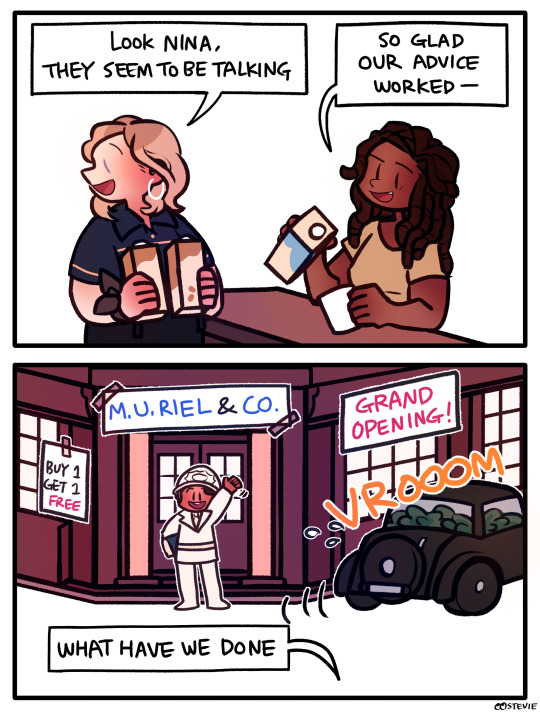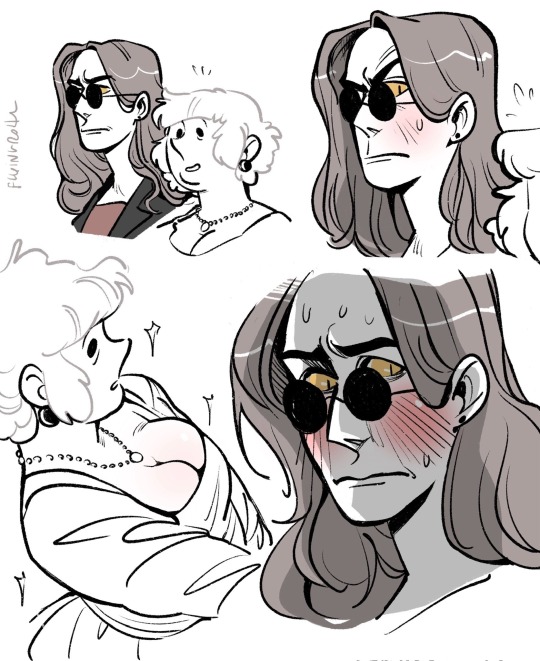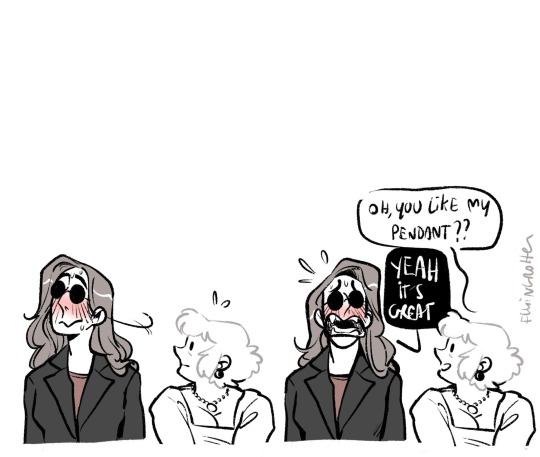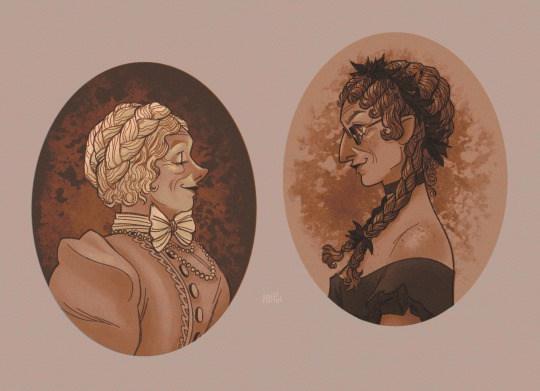Don't wanna be here? Send us removal request.
Text
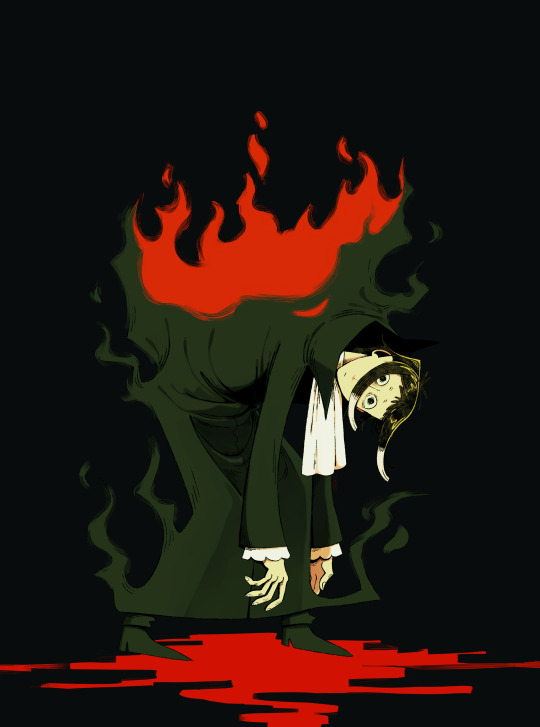

me when my head hurts a lot and i start seeing the rashomon man
5K notes
·
View notes
Text



some warmth for atsushi because he has suffered enough
16K notes
·
View notes
Text
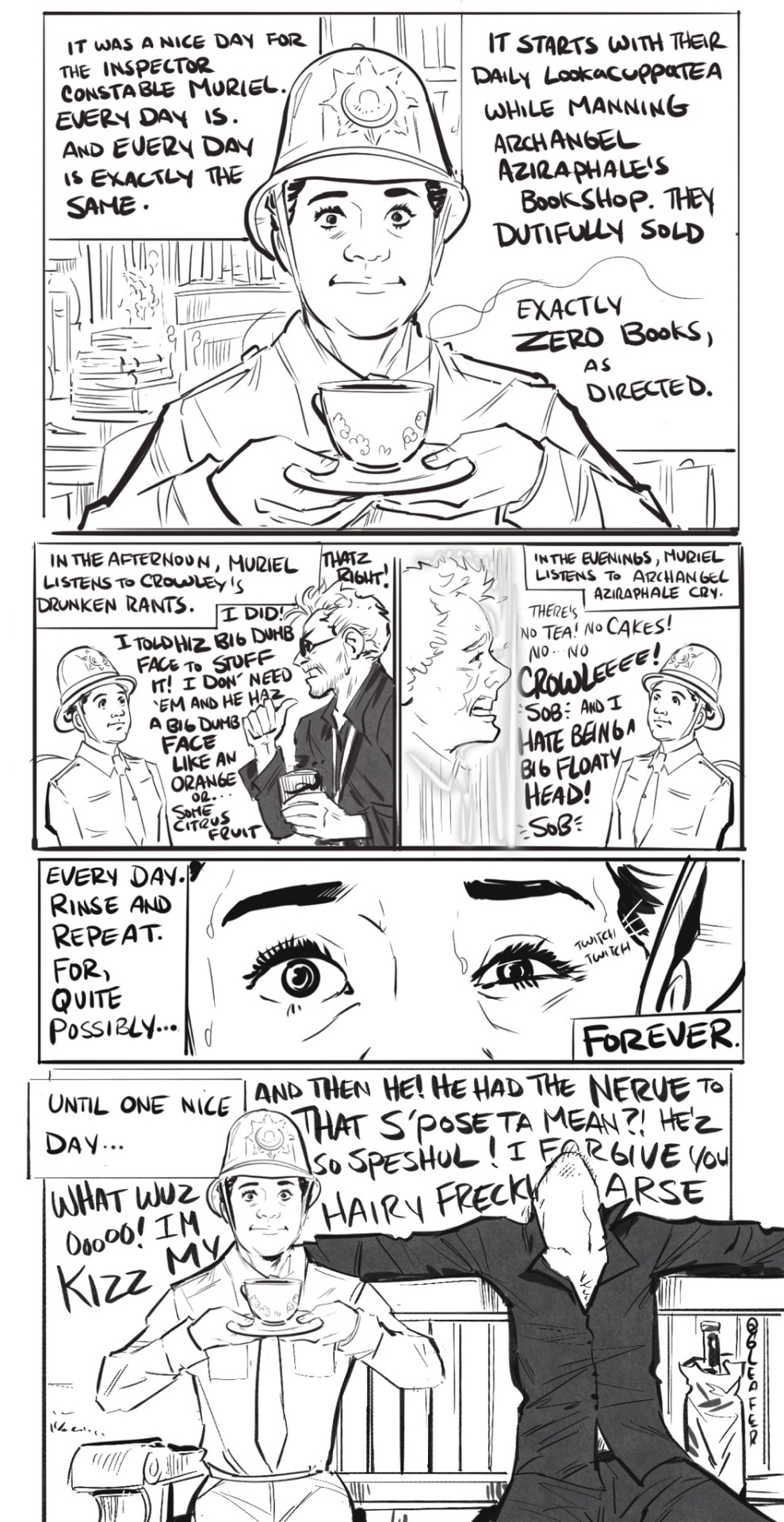
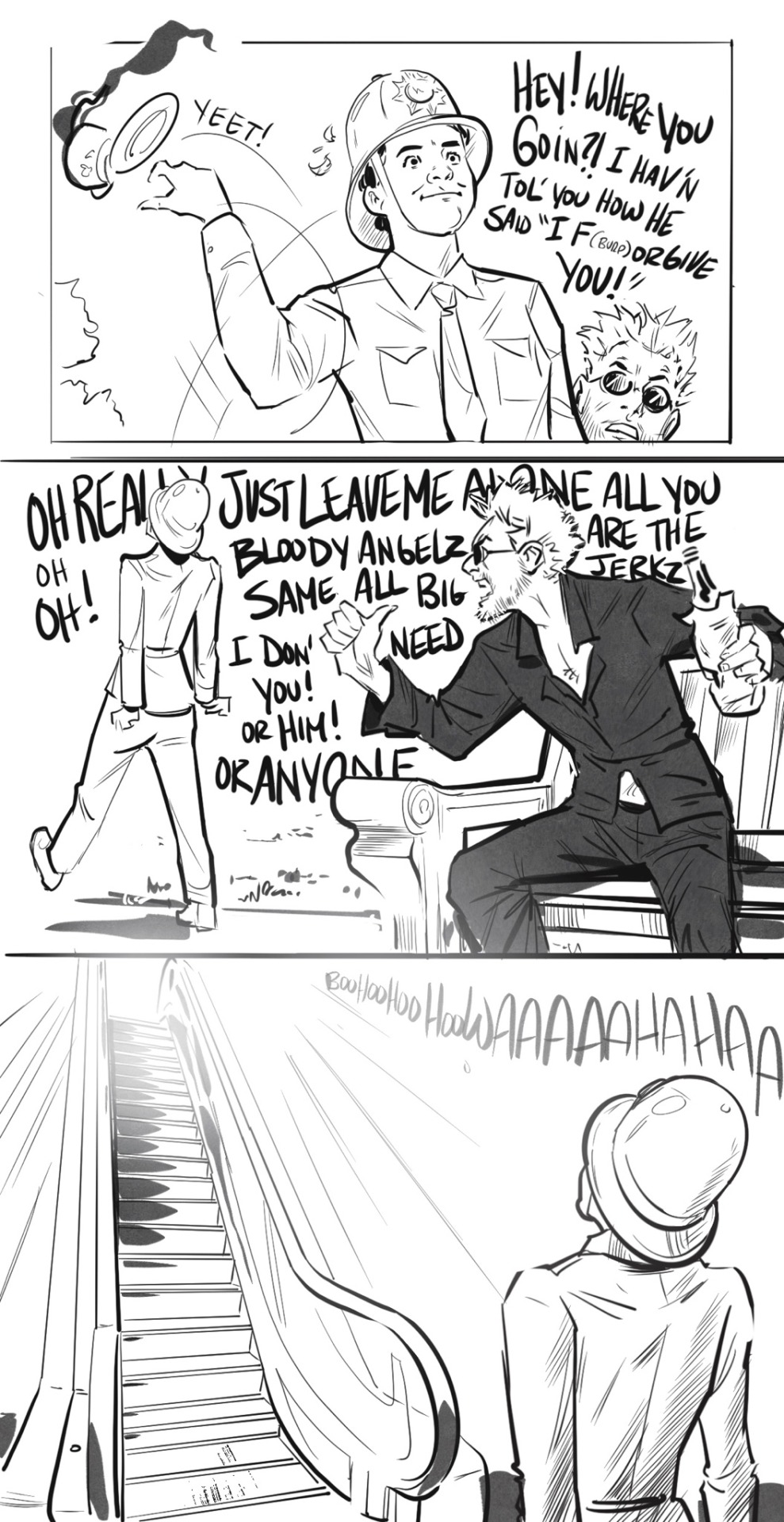
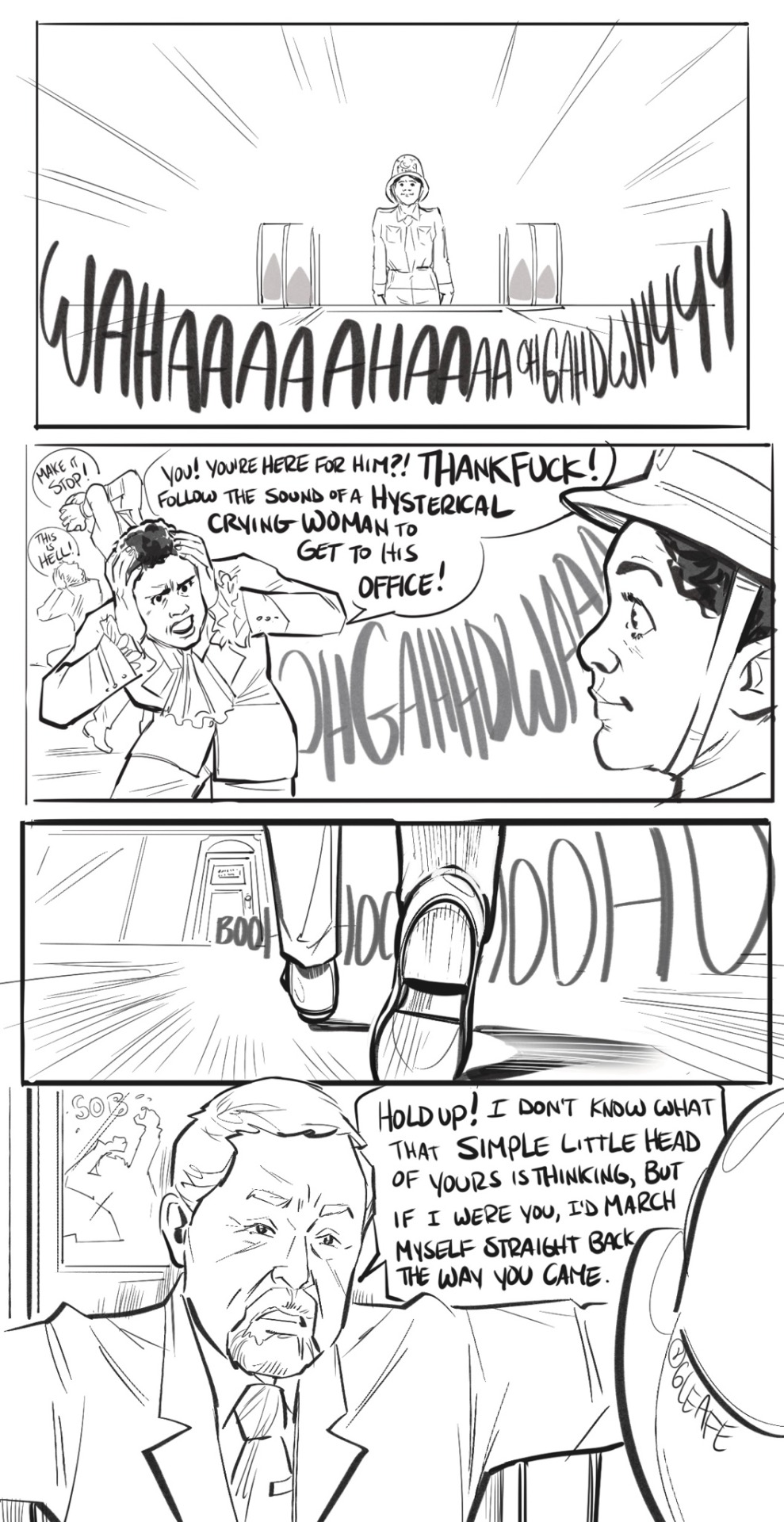
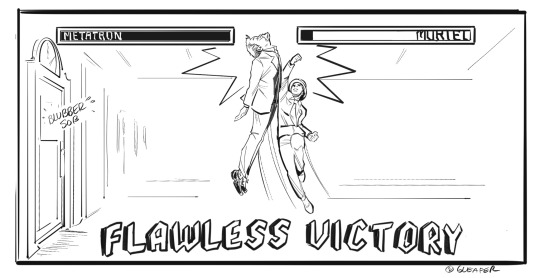
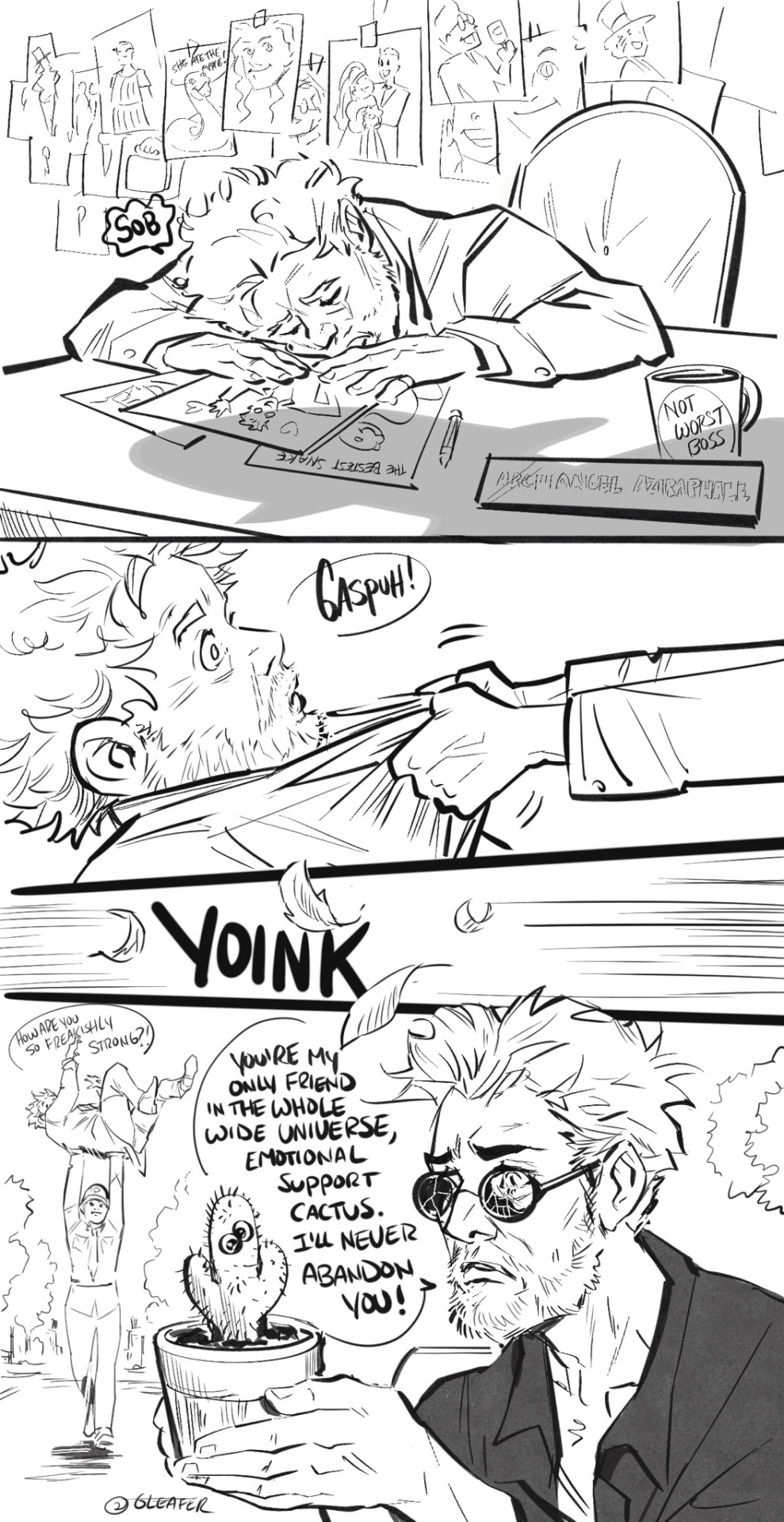
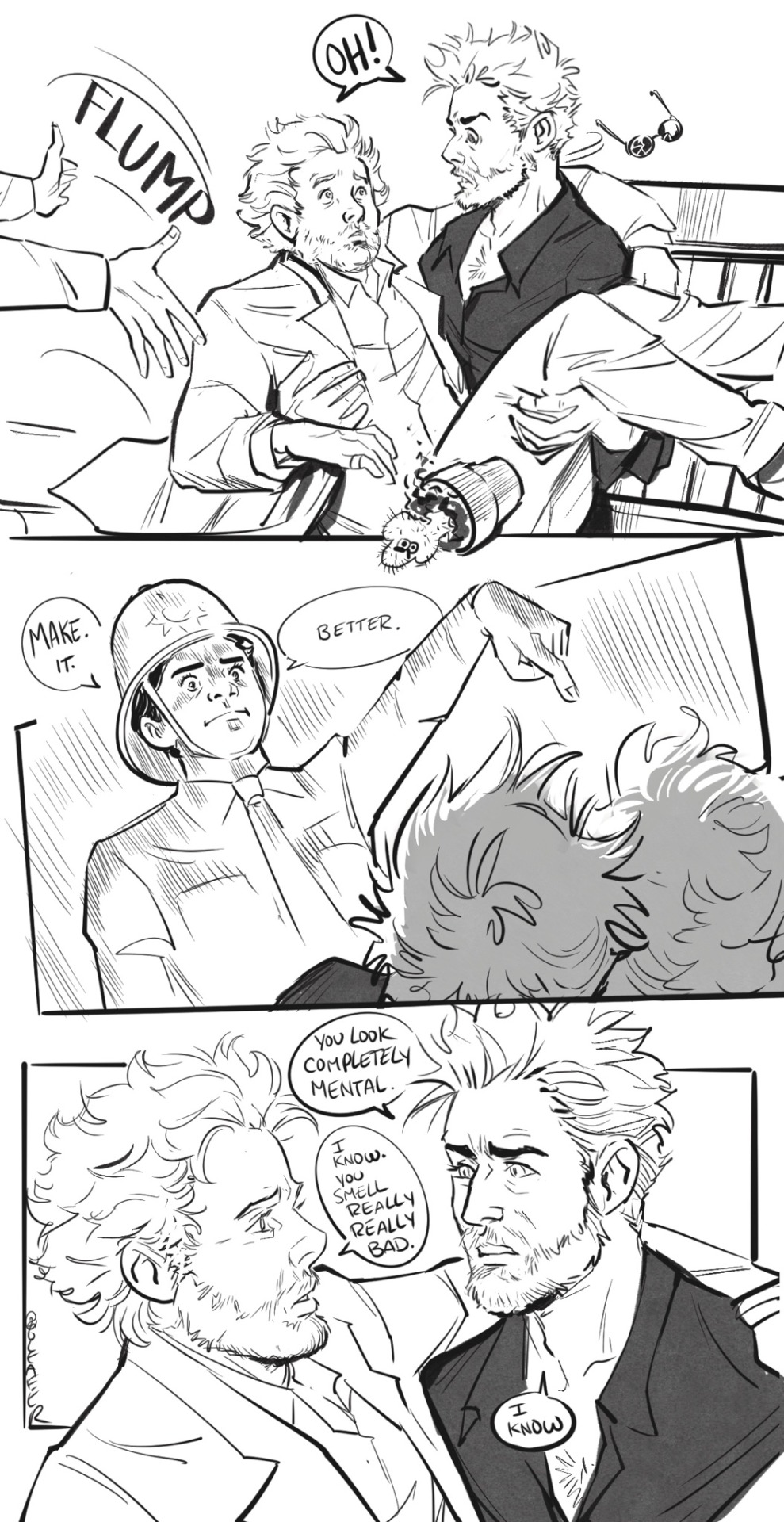

I have decided to unleash The Day Muriel Had Enough comic unto my wonderful Tumblr Followers!
Thank you for the support and hilarious comments! It means so much to me and makes it easy to keep at it!
Happy holidays with all my love and nonsense!
7K notes
·
View notes
Text

Painting a snake-trait
(a GO parody repaint of ‘Allegory of Painting’ by François Boucher)
(Happy 2 year anniversary of S2, folks!)
1K notes
·
View notes
Text
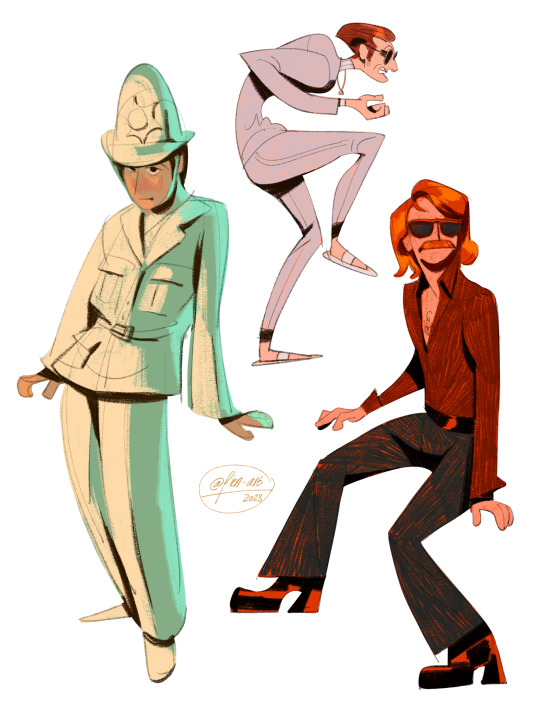
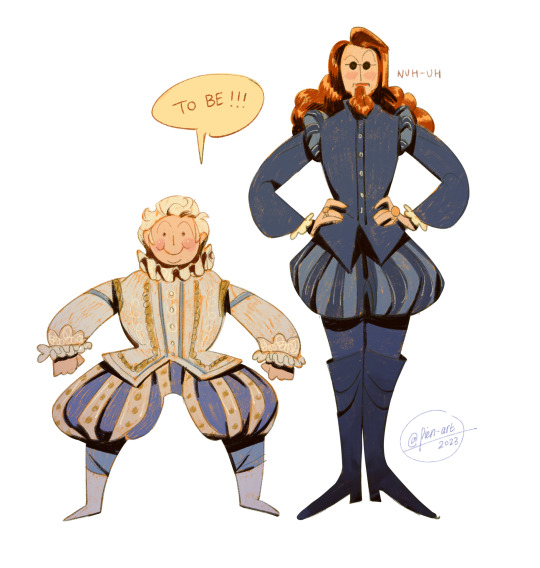
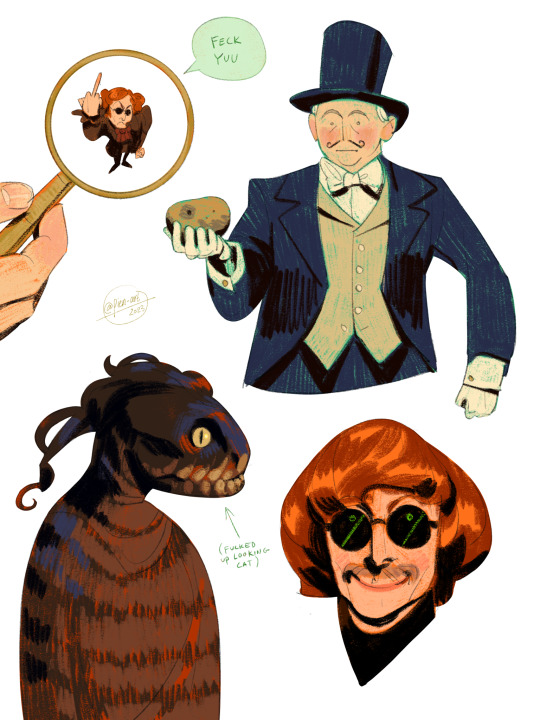
more good omens!! literally whats up with these guys
53K notes
·
View notes
Text
Why Aziraphale is completely ridiculous in the Bastille scene (and I love him so much for it)
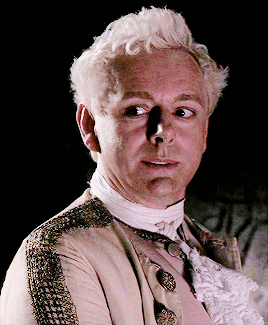
A while ago I posted a comparison of Aziraphale and Crowley's costumes in the 1793 flashback in Good Omens and I wanted to add these little tidbits. (Because they haunt me.)
I feel like most people know this but IF YOU DON'T, Paris in 1793 is right in the middle of something called La Terreur.
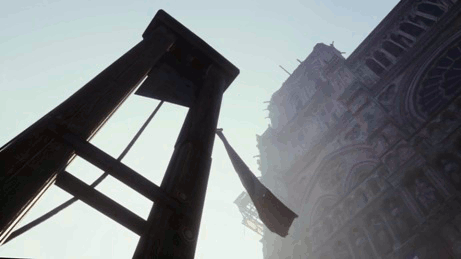
HISTORY LESSON If you didn't learn this in school the French Revolution was when, after years of escalating social tension, a coalition representing the working classes of France revolted against the monarchy, violently overthrew King Louis XVI, and declared France to be a republic.
The new National Convention governing France ruled that King Louis XVI and his wife Marie Antoinette were traitors to the people of France because of how they had spent ridiculous amounts of money on luxuries for themselves while vast numbers of the lower classes were literally starving to death. (keep the bold in mind - wealth and class disparities were one of the key causes of the whole-ass revolution)
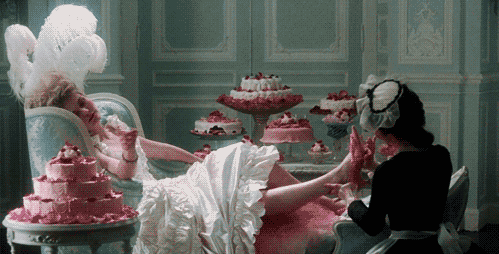
In 1793 (year of the flashback) both the King and Queen were executed by guillotine for their crimes.
This kicks of something called The Reign of Terror (La Terreur if you want to be French about it). A multi-year-long period in which the National Convention goes on a bloody witch hunt for any and every member of the middle or upper classes who could even possibly be considered a traitor by those same standards.
If you A) had money or privilege, and B) had ever used your money or privilege to treat yourself, you were getting executed. Over 25,000 people died during the Reign of Terror, half of them by guillotine. In fact, the iconic guillotine was used because it was physically impossible to keep up with the sheer number of people they were executing in Paris every single day.
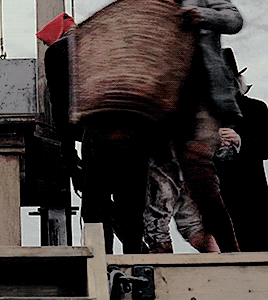
Some things that could get you killed (actually and completely seriously) during the Reign of Terror:
Implying in any way you were sympathetic to the monarchy
Having a noble title
Having expensive things
Wearing expensive, luxurious clothes (*cough* AZIRAPHALE)
helping or sympathizing with anyone who did any of the above
a working-class person saying you were mean to them once
And then there's this bitch...
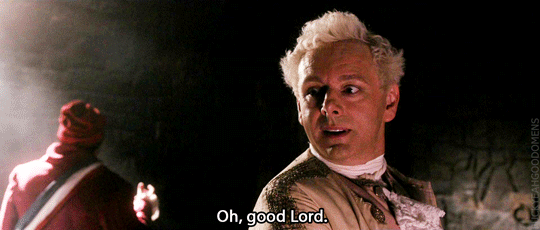
I AM NOBILITY PLEASE KILL ME So we have established that Paris in 1793 is in the middle of a frenzied, state-sanctioned bloodbath in which the working classes are massacring everyone even remotely nobility-adjacent. And in the middle of this frenzy, Aziraphale proceeds to roll up in Paris in this outfit:
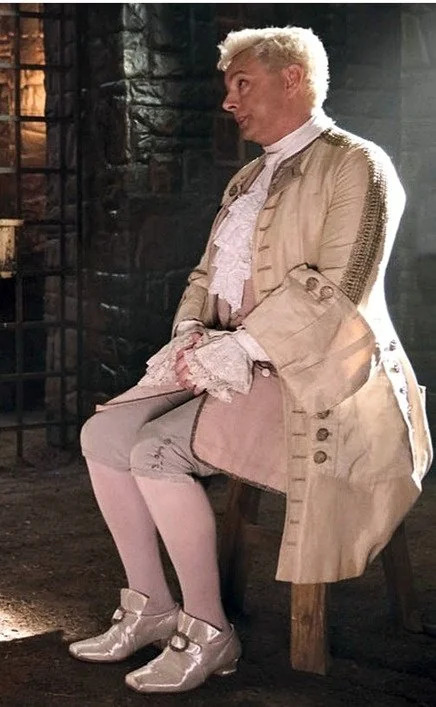
How will this outfit get him killed? Let me count the ways...
First off- at this point everyone with even the tiniest shred of self- preservation is hiding the fact that they are in any way associated with the monarchy. The wealthy are straight-up abandoning mansions. The middle-class are plastering over decorations to make their house look 'poor'. The only people dressed remotely decent are the guys leading the National Convention and that's just because nobody can stop them. Everyone else is in 24/7 peasant cosplay or else they are covering themselves in cockades and sashes on to show they're pro-Republic.
Aziraphale is basically a giant shiny white sign saying I AM NOBILITY PLEASE KILL ME.
First off the lace jabot and lace cuffs are both associated with the old-school wealthy in the 1790's.
His coat is also decorated in gold braid and silver buttons, which are both marks of wealth and luxury.
He basically looks like he works for Louis XIV - not just rich, but old school rich.
We know it's his natural hair color, but hair powdering (with clay and starch) had been a big trend with the rich all throughout the 18th century to get that clean white venerable look . To someone who doesn't know it's natural, it would very much look like he's wearing hair powder.
He's wearing shades of cream and white, which are very hard to keep clean and clearly states that the wearer is rich and can afford the upkeep necessary to keep an outfit like that stain-free.
He's wearing white knee-breeches and stockings, also called culottes. See above about laundry and how rich you had to be to wear white, but also working-class men wore long pants like this:
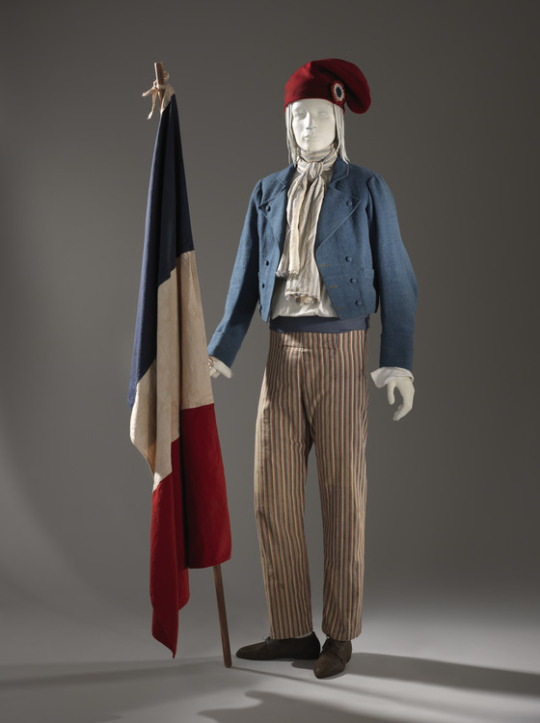
A large faction involved in the Revolution were the Sans-Culottes (no-culottes aka we wear long pants LIKE GOOD OLD WORKING MEN). Culottes are specifically associated with everything the revolution hated. That's right - Aziraphale is literally wearing The Fanciest of Fancy Pants in a city where a group called The Men Against Fancy Pants are running around murdering people.
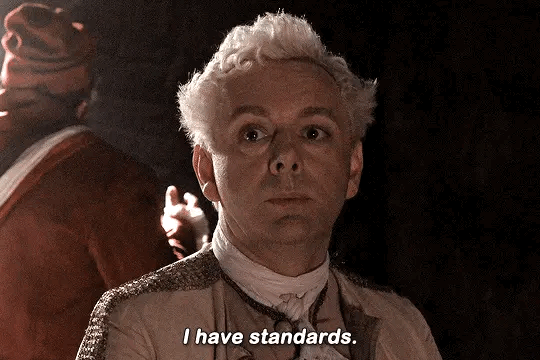
And then there are his shoes.
Oh god his shoes
I could do a whole post about Aziraphale's blessed little white satin pumps and how ridiculous they are.
Actually I might just do that because this is getting so long and I still have to talk about the brioche.
So I can't remember if it's in the script book or if it's from Neil Gaiman's tumblr, but it's apparently canon (?) that Aziraphale was going around in that outfit asking people where he could get crepes and brioche when he was arrested.
The Affair of the Brioches
So... uh... we've all heard the line attributed to Marie Antoinette- how when she was told that her people were starving because there was no bread left in Paris, she famously said...

It's morphed into 'let them eat cake', but the line is first recorded as, "Then let them eat brioches."
While it's unlikely she ever actually said it, the important thing is that... people in 1793 would have thought she said it. It was used as political smear to show how arrogant and out of touch the monarchy was. Marie Antoinette in particular was reviled by the people of France, who thought she was the main cause of their economic problems. That's why she was executed too.
Bread and brioche and the lines between poverty and privilege were a big thing in Revolutionary France. There was a lot of political connotation to what you ate. The French Revolution came about because of decades of suffering among the lower classes of France. It wasn't something that some dudes just decided to do. The people of Paris have been through years of the absolute worst, most oppressive poverty and starvation you can imagine, all while watching the rich throw money around crazy.
So let us recap.
Aziraphale is dressed so ridiculously posh that he looks like a joke parody of a nobleman... and he is bumbling around Paris during the Reign of Terror. Asking people. For brioche. How I imagine everyone looked at him:
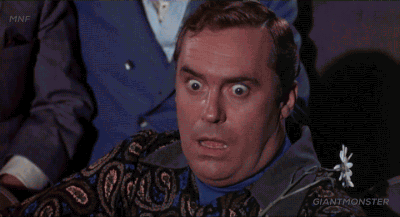
It is so astoundingly tone deaf and tactless. He is basically cosplaying as Marie Antoinette and then going around asking the poor for cake.
I just.... Aziraphale. babygirl. no. oh no. You're lucky they even bothered to take you to prison. I am amazed Crowley ever let him live that down.
I have no conclusion other than this. Aziraphale is ridiculous and I love him so much.
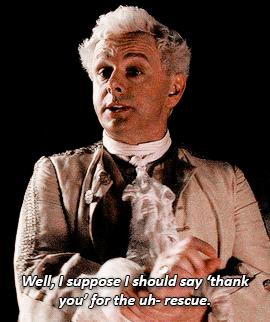
YES YOU REALLY SHOULD SIR.
2K notes
·
View notes
Text
Aziraphale’s Choice, the Job Connection, and Michael Sheen’s Morality
Update: Michael Sheen liked this post on Twitter, so I'm fairly certain there is a lot of validity to it.
I’ve had time to process Aziraphale’s choice at the end of Season 2. And I think only blaming the religious trauma misses something important in Aziraphale’s character. I think what happened was also Aziraphale’s own conscious choice––as a growth from his trauma, in fact. Hear me out.
Since November 2022 I’ve been haunted by something Michael Sheen said at the MCM London Comic Con. At the Q&A, someone asked him about which fantasy creature he enjoyed playing most and Michael (bless him, truly) veered on a tangent about angels and goodness and how, specifically,
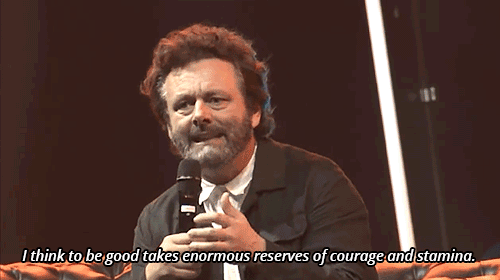
We as a society tend to sort of undervalue goodness. It’s sort of seen as sort of somehow weak and a bit nimby and “oh it’s nice.” And I think to be good takes enormous reserves of courage and stamina. I mean, you have to look the dark in the face to be truly good and to be truly of the light…. The idea that goodness is somehow lesser and less interesting and not as kind of muscular and as passionate and as fierce as evil somehow and darkness, I think is nonsense. The idea of being able to portray an angel, a being of love. I love seeing the things people have put online about angels being ferocious creatures, and I love that. I think that’s a really good representation of what goodness can be, what it should be, I suppose.
I was looking forward to BAMF!Aziraphale all season long, and I think that’s what we got in the end. Remember Neil said that the Job minisode was important for Aziraphale’s story. Remember how Aziraphale sat on that rock and reconciled to himself that he MUST go to Hell, because he lied and thwarted the will of God. He believed that––truly, honestly, with the faith of a child, but the bravery of a soldier.
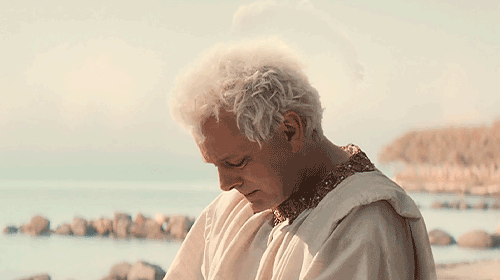
Aziraphale, a being of love with more goodness than all of Heaven combined, believed he needed to walk through the Gates of Hell because it was the Right Thing to do. (Like Job, he didn’t understand his sin but believed he needed to sacrifice his happiness to do the Right Thing.)
That’s why we saw Aziraphale as a soldier this season: the bookshop battle, the halo. But yes, the ending as well.
Because Aziraphale never wanted to go to Heaven, and he never wanted to go there without Crowley.
But it was Crowley who taught him that he could, even SHOULD, act when his moral heart told him something was wrong. While Crowley was willing to run away and let the world burn, it was Aziraphale (in that bandstand at the end of the world) who stood his ground and said No. We can make a difference. We can save everyone.

And Aziraphale knew he could not give up the ace up his sleeve (his position as an angel) to talk to God and make them see the truth in his heart.
I was messed up by Ineffable Bureaucracy (Boxfly) getting their happy ending when our Ineffable Husbands didn’t, but I see now that them running away served to prove something to Aziraphale. (And I am fully convinced that Gabriel and Beelzebub saw the example of the Ineffables at the Not-pocalypse and took inspiration from them for choosing to ditch their respective sides)
But my point is that Aziraphale saw them, and in some ways, they looked like him and Crowley. And he saw how Gabriel, the biggest bully in Heaven, was also like him in a way (a being capable of love) and also just a child when he wasn’t influenced by the poison of Heaven. Muriel, too, wasn’t a bad person. The Metatron also seemed to have grown more flexible with his morality (from Aziraphale's perspective). Like Earth, Heaven was shades of (light?) gray.
Aziraphale is too good an angel not to believe in hope. Or forgiveness (something he’s very good at it).
Aziraphale has been scarred by Heaven all his life. But with the cracks in Heaven’s armor (cracks he and Crowley helped create), Aziraphale is seeing something else. A chance to change them. They did terrible things to him, but he is better than them, and because of Crowley, he feels ready to face them.
(Will it work? Can Heaven change, institutionally? Probably not, but I can't blame Aziraphale for trying.)
At the cafe, the Metatron said something big was coming in the Great Plan. Aziraphale knows how trapped he had felt when he didn’t have God’s ear the first time something huge happened in the Big Plan. He can’t take a chance again to risk the world by not having a foot in the door of Heaven. That’s why we saw individual human deaths (or the threat of death) so much more this season: Elspeth, Wee Morag, Job’s children, the 1940s magician. Aziraphale almost killed a child when he couldn’t get through to God, and he’s not going through that again.
“We could make a difference.” We could save everyone.

Remember what Michael Sheen said about courage and doing good––and having to “look the dark in the face to be truly good.” That’s what happened when Aziraphale was willing to go to Hell for his actions. That’s what happened when he decided he had to go to Heaven, where he had been abused and belittled and made to feel small. He decided to willingly go into the Lion’s Den, to face his abusers and his anxiety, to make them better so that they would not try to destroy the world again.
Him, just one angel. He needed Crowley to be there with him, to help him be brave, to ask the questions that Heaven needed to hear, to tell them God was wrong. Crowley is the inspiration that drives Aziraphale’s change, Crowley is the engine that fuels Aziraphale’s courage.
But then Crowley tells him that going to Heaven is stupid. That they don’t need Heaven. And he’s right. Aziraphale knows he’s right.
Aziraphale doesn’t need Heaven; Heaven needs him. They just don’t know how much they need him, or how much humanity needs him there, too. (If everyone who ran for office was corrupt, how can the system change?)
Terry Pratchett (in the Discworld book, Small Gods) is scathing of God, organized religion, and the corrupt people religion empowers, but he is sympathetic to the individual who has real, pure faith and a good heart. In fact, the everyman protagonist of Small Gods is a better person than the god he serves, and in the end, he ends up changing the church to be better, more open-minded, and more humanist than god could ever do alone.
Aziraphale is willing to go to the darkest places to do the Right Thing, and Heaven is no exception. When Crowley says that Heaven is toxic, that’s exactly why Aziraphale knows he needs to go there. “You’re exactly is different from my exactly.”
____
In the aftermath of Trump's election in the US, Brexit happened in 2018. Michael Sheen felt compelled to figure out what was going on in his country after this shock. But he was living in Los Angeles with Sarah Silverman at the time, and she also wanted to become more politically active in the US.
Sheen: “I felt a responsibility to do something, but it [meant] coming back [to Britain] – which was difficult for us, because we were very important to each other. But we both acknowledge that each of us had to do what we needed to do.” In the end, they split up and Michael moved back to the UK.
Sometimes doing the Right Thing means sacrificing your own happiness. Sometimes it means going to Hell. Sometimes it means going to Heaven. Sometimes it means losing a relationship.
And that’s why what happened in the end was so difficult for Aziraphale. Because he loves Crowley desperately. He wants to be together. He wanted that kiss for thousands of years. He knows that taking command of Heaven means they would never again have to bow to the demands of a God they couldn’t understand, or run from a Hell who still came after them. They could change the rules of the game.
And he’s still going to do that. But it hurts him that he has to do that alone.
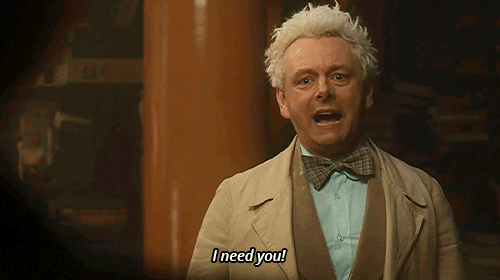
11K notes
·
View notes
Text
Crepes: The 1.01 sex meta thing
Alright, my romantic and horny murder hornet friends...
...come and get your very requested 1.01-scene(s)-that-shows-that-Crowley-and-Aziraphale-are-lovers sex meta thing.
We'll be getting a bit blush-inducing NSFW under the cut so keep that in mind...
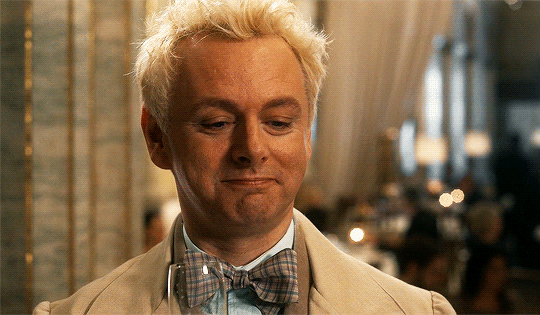

As Fraulein Maria suggests: Let's start at the very beginning... a very good place to start... when you read, you begin with: A, B, C...
...when you speak Ineffable Husbands, the show tells us, you begin with: lunch, alcohol, and crepes...
We're going to do this semi-glossary-style, since those have proven popular and it works well for this. There are some very brief mentions of Satan's attacks on Crowley, for those that would like to know of that ahead of time. Other than that, I don't think any other trigger warnings apply.
"Gentlemen, in your role as the audience, could you, perhaps, give us more to work with?" -- William Shakespeare, 1601, meta-ing for the writers and performers of Good Omens, requesting us to dive a little deeper.
Temptation accomplished.
~~~
Secret language. A language spoken by secret agents for the purpose of keeping the full, true meaning of their conversation hidden by those who might be observing them. Comprised of code words and phrases that contain other layers of meaning beneath the more easily understood surface layer. Difficult-- and, at times, impossible-- for those who do not speak the language to understand it without a key that unlocks at least one word of the language, revealing the hidden conversation beneath the surface.
Key. Additional context that reveals hidden meaning in a secret language by providing understanding of other layers of meaning beneath the surface in a conversation between secret agents.
Example: some bleating goats in 2500 B.C. illustrating for Aziraphale via additional information and context the true meaning of Crowley's words in the scene. Most keys in Good Omens are separate scenes; this one is an exception because it's the origins of their secret language in the first place. This is also a partner scene to the "no nightingales" moment in 2.06.
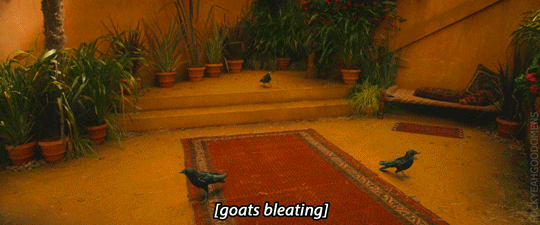
Partner scene(s). In Good Omens, a scene or scenes which act as keys to other scene or scenes, providing information and context necessary to fully understand the initial scene, which is usually one we saw earlier in the story.
Example: The Bullet Catch scenes in The Blitz, Part 2 in S2 adding layers of context and meaning to both Crowley and Aziraphale with the paintball gun and Crowley giving the office workers miraculous escapes from death at Tadfield Manor in S1.
Crowley and Aziraphale. Supernatural secret agents of sorts, introduced to us that way by our narrator, God, who points out their penchant for meeting alongside human secret agents in St. James Park. They speak in a secret language that we'll call in this meta Ineffable Husbands Speak that only they-- and God-- speak fluently... but for which Good Omens has been slowing giving us enough information to learn how to speak as well.
Code words. Often neutral-sounding and very common words--by design-- in order to keep the hidden meanings of the secret language secret from outside observers by making it sound like everyday conversation. As a result, code words have dual layers of meaning: they refer to a literal thing on the surface level but also have a secondary meaning beneath that within the secret language.
Example, in Ineffable Husbands Speak: "dining at The Ritz."
To "dine at The Ritz" (in Ineffable Husbands Speak). Surface, literal level: to eat a meal at the restaurant at The Ritz-Carlton, London. Hidden level: to take steps towards being less secretive about their relationship and to live more of a life that is theirs together.
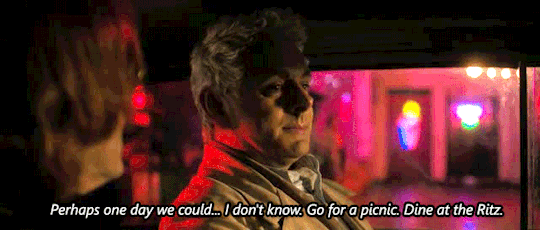
Code phrase/cypher. A phrase that sounds as if it has a single, understood meaning on the surface but is comprised of code words put together to convey a meaning that is hidden from anyone who might hear the phrase but does not speak the secret language. Impossible to understand unless you either created the language or were given instructions on how to speak it... unless you can come into possession of a key that can unlock it.
If spoken to someone who does not have a key to understanding it, they might possibly be able to recognize that you are speaking in a kind of code... but they will not have the understanding of the double meanings of the keywords, nor the context required, to figure out just what the hell you're talking about.
Example: "The clarinet can make beautiful music."

Good Omens included this scene right near the start of the season in 2.01 in which both Crowley and we the audience have no idea what Agent Fuzuli is *really* saying, even if his sentence makes technical, if not really contextual, sense. We can recognize from his over-the-top obvious spy-speak that he is speaking in code. They did so to highlight the existence of hidden language in the show and how important it is to unlocking more layers of meaning in the story.
Neither we nor Crowley expressly need to decode this particular sentence to understand what's happening in the story of Good Omens because Good Omens is not about the romance of Agent Fuzuli and his new paramour, the Azerbaijani Sector Chief. (Cupid!Crowley really out here matchmaking everyone in sight in S2 lol.) If it were, we would be needing to figure out what this clarinet and its beautiful music are all about. Instead, though, the show is suggesting that hidden language and decoding it is paramount-- but we should focus a bit more on the secret language of our main characters Crowley and Aziraphale instead.
Sexual innuendo/sexual euphemism: A kind of secret language in which something that is not inherently sexual is given a sexual connotation. Relies heavily on suggestive tone and context. Often full of in-jokes. Often done to soften talk of sex-- and, just as often, paradoxically, tends to make things actually a bit sexier. Relies on a sense of humor and so increases a sense of playfulness and fun between partners. Is flirting by way of creating a secret language out of innuendo.
Example: To "mend his shirt" in the (code-named) Mrs. Sandwich's sexually euphemistic speak, as brought on by Aziraphale's 19th century-era magic during The Ball, is to give a blowj-- well, actually, here: Crowley will define the innuendo for us through the use of partner scenes...
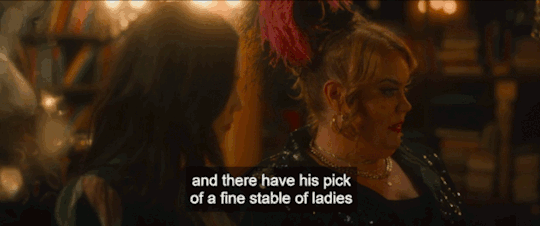
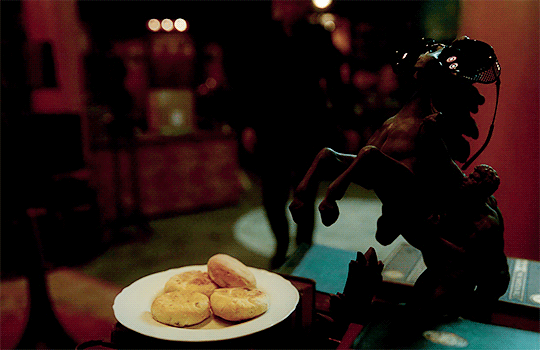
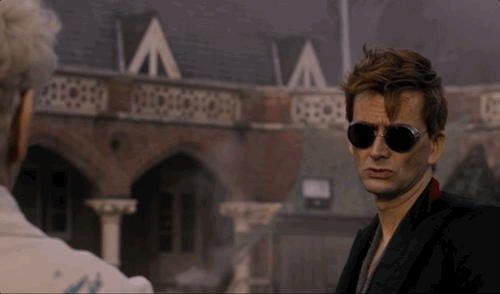
"Fine *stable* of ladies"... the horse statue where Crowley keeps his glasses in the bookshop... mending Aziraphale's shirt in a way evocative of mending Aziraphale's shirt...
Mrs. Sandwich. A "seamstress." Not her real name. A walking, talking intersection of secret language, innuendo and sex in Good Omens, whose name and the content of her scenes help us confirm we're on the right track in decoding Ineffable Husbands Speak.
Sandwiches. Popular, common food that can be eaten anytime during the day but are most commonly associated with lunch.
Lunch. Midday meal. What Aziraphale offers to buy Crowley in thanks for Crowley rescuing him from The Bastille in the Paris, 1793 scene.
Paris, 1793/The Bastille. Partner scene that acts as the key to the 1.01 scene-- and its subsequent scenes-- that shows the nature of Crowley and Aziraphale's relationship through their use of secret language.
Let's Have Lunch. The 1.01 scene that, when unlocked using its partner scene of 1.03's Paris, 1793 scene, reveals that Crowley and Aziraphale are lovers. How so? Read on. :)
Armageddon: Round One. The end of the world and what Crowley and Aziraphale both separately learn is in motion in 2008 in 1.01. They meet the following day to discuss it and the show tells us then, at the start of the story, exactly one bullet point on their shared timeline-- the very first thing we ever learn about the entire 6,004 years that they have been living on Earth together since the last time we saw them together in Eden. Something important enough that it received its own partner scene in the 1.03 Cold Open basically entirely to help decode this scene in 1.01-- and re-contextualize the 2008 minisode (and a lot more) as a result.
What is this single, very important bullet point?
A lunch they had together in Paris in 1793.
As Crowley & Aziraphale head through the park and argue over whether or not to stop Armageddon, they eventually reach the spot on the side street where Crowley has parked The Bentley. This brings them to not just a conversational impasse but a physical one-- there's nowhere left to walk because they're now at the car and this is when Crowley says:
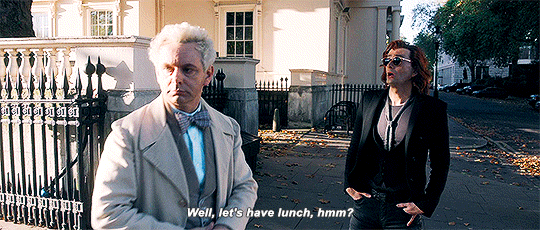
"Well, let's have lunch, hmm? I still owe you one from..." At this point, we're too busy being charmed by this vintage-y angel and this rock star demon who lunch together on Earth arguing over Armageddon to barely notice the content of this scene and that might be by design. It is sandwiched between two other scenes, both of which understandably get a lot more attention: the "celestial harmonies" conversation on the bench in St. James Park and the kinky lunch at what we'll later learn is The Ritz. ("Lunch" in Ineffable Husbands Speak is not *just* the food kinky lunch, as we'll get into below.)
We also don't yet have the key the first time we watch this scene to decode it because we aren't given that by Good Omens until the 1.03 Cold Open and its Paris, 1793 scene. We can pick up on some vibes in this scene in 1.01 but unless we use the Paris, 1793 scene to fully decode Let's Have Lunch in 1.01, we aren't actually understanding what they are saying and, as Fraulein Greta Kleinschmidt would say, we must know what they are saying... (since we're all not Nazi Zombies, we'll be able to actually figure it out...) :)
...but we do now have the 1.03 Paris, 1793 scene so now, let's check out the moment this scene becomes, um, important-- and that is Aziraphale's response to Crowley's invitation to lunch:
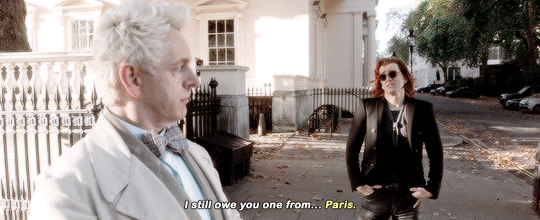

Oh, what's this now...? Crowley owes you lunch from *when,* Aziraphale? From "Paris, 1793", did you say...?!
You mean from the time that you dragged Crowley to The Bastille to save you from a situation you put yourself in and could get yourself out of the entire time because you have a Neil Gaiman-Ask-confirmed, canonical thing for him rescuing you (and because, as a fun S2 partner scene suggests, rescuing you always does make him so happy) and you were so very grateful for the rescue that you offered *to buy him lunch*?! A lunch that this scene in 2008 will confirm you went and had together? A lunch that we had *an entire, separate scene about* in the middle of the 1.03 Cold Open-- alongside The Arrangement and the 1862 breakup and 1941 and the 1967 holy water scene, in terms of importance to understanding this relationship from the show's perspective? THAT LUNCH?! lol
Paris, 1793. The ONE TIME IN THE ENTIRE HISTORY OF THIS RELATIONSHIP lol that it can be safely said that Crowley absolutely, 150%, *most definitely does not owe Aziraphale lunch*. The time we had a whole extra scene over, just to confirm how much Crowley does not owe Aziraphale lunch from this one time in Paris in 1793...
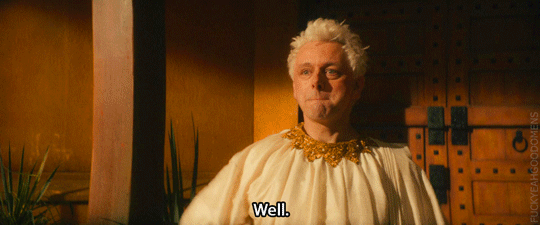
Well, well, well... seems we have ourselves a key. :)
Lunch. Code word in Ineffable Husbands Speak. A code word that, when unlocked, helps to unlock additional language, as we will see.
If Aziraphale's reply to Crowley's lunch invitation is to say the one time in history from which we know Crowley doesn't owe Aziraphale lunch, then Aziraphale's reply is really in response to the hidden, second layer of meaning beneath the lunch invitation, which means that Crowley isn't just asking Aziraphale if he wants to go grab the midday meal together and Aziraphale is more than aware of that. As we will see from the dialogue below, this suggestion that they have lunch on the surface level is also, on the hidden language level, a suggestion that they have sex.
So, ok, let's try this 1.01 scene again, now that we've started to factor in the information we have from its 'Paris, 1793' partner scene from 1.03...

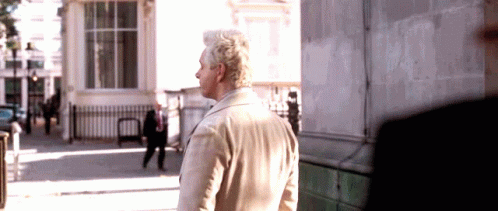


What Aziraphale Is *Not* Saying When He Replies "Paris, 1793" to Crowley's Lunch Invitation in 2008: That he would like to time travel to The French Revolution for lunch; that he would like to go to Paris in the present for lunch; that he wants to go to their favorite creperie; that he wants to go get himself locked up in a maximum security prison so Crowley can come rescue him...
What Aziraphale *Is* Saying When He Replies "Paris, 1793" to Crowley's Lunch Invitation in 2008: That he would like to go to lunch and also that he would like to go to *lunch*-- which is to say that he's in agreement that sex sounds perfect-- and that what he "wants for lunch" is a repeat of how they made love in Paris in 1793.
Let's repeat that because mmhmm lol...
Sitting there in the middle of the second half of Crowley and Aziraphale's second scene in person together, in the middle of the first episode of the show, is Aziraphale recounting sex he and Crowley had over 200 years prior to when this scene is taking place in response to Crowley's suggestion that they shake off the Armageddon blues by sexy lunching their way to spending the night in Aziraphale's bed.
This conversation on the surface is about going to lunch and they are very funny with the literal part of their secret language, as they will actually go to lunch, as we know-- and during that lunch, Crowley will make a joke about the dual layers of meaning of their language when defining the next word in their language for us, which we will get to in a moment. For now, though, let's just go back to the "let's have lunch" scene here and look at the rest of it now that we can understand it on both levels of meaning...
"Well, let's have lunch, hmm? I still owe you one from..." Crowley does not actually owe Aziraphale lunch; this is a way to throw the decisions to him, keeping it sounding like they are just talking about eating lunch-the-midday-meal on the surface when we now know that it's more than that. He trails off and both verbally and non-verbally indicates a whole "you tell me" attitude, having offered up the idea and now giving the choice to Aziraphale. (It's not a magical influence "you tell me" like he did with Sitis, just a verbal ellipsis/non-verbal head shake that hands the conversation over to Aziraphale.) As a result of this and their responses in the rest of the scene, this becomes:
"Well, let's have lunch, hmm? I still owe you one from..." Well, let's have sex, hmm? Let's do our kinky lunch thing. Tell me what you want for later and we'll do that. Whatever you want. Armageddon already fucked up our lunchy dinner that we were supposed to sneak out to have at the fascinating little sushi restaurant where they know you last night-- it can go fuck itself for the afternoon. We're both depressed and tired. Eleven years left. We're almost out of time. I just want to be close to you. Let's have lunch.
"Paris. 1793." I could eat. I never can resist you, you know that. Remember Paris? After The Bastille? I'd like that.
Does Crowley remember The Bastille?
Oh, Crowley remembers The Bastille...
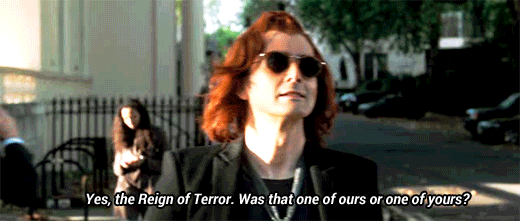
Someone had a very nice time in Paris in 1793 if that little smile and that look and the little "yessss" are any indication. Crowley is down with revisiting The French Revolution and after this, they're both just heading to The Bentley as they continue talking because lunch is on. But why are we even talking about Paris 1793 when we have all seen this episode and know they aren't about to instantly drive back to the bookshop and get their Bastille on?
Anticipatory kink. When partners arrange to have sex in the short term but not immediately and spend the interim time discussing the sex they plan to have as a way of arousing one another over anticipation of the future lovemaking. A form of psychological edging/delayed pleasure. Fancy way of saying 'teasing the fuck out of each other' lol.
The first part of lunch for Crowley and Aziraphale is deciding what's for lunch-- before they go to have lunch-as-in-some-food-- even if part of lunching is that they aren't going to have sex for hours still to come. In addition to the anticipatory element, it's just fun to talk to your partner about sex and the way they do so also has them euphemistically refer back to past times they made love as a way of turning each other on with the memories of those past encounters-- so, doubly fun.
"Yessss. The Reign of Terror. Was that one of ours or one of yours?" Crowley's response to "Paris, 1793." He says 'The Reign of Terror' a little sarcastically, implying that while that is the historical name for the era, he and Aziraphale were actually pretty happy during it, which goes along with what we saw in The Bastille scene. On the surface, though, Crowley and Aziraphale are still attempting to make it sound like they're talking about The Reign of Terror so, technically, "was that one of ours or one of yours?" is a question that is supposed to be about who (Heaven? Hell?) was responsible for The French Revolution but oh, that Paris, 1793 scene is a good partner scene as we know the answer to this question, too...
The French Revolution. Not Crowley's demonic work. The humans thought it up themselves. Established in the Paris, 1793 scene, to help us better understand this bit of the Let's Have Lunch scene.
"Was that one of ours or one of yours?" Look at the wording of that. By definition, since Crowley is speaking to Aziraphale, the "ours" has to include Aziraphale. It's a subtle but present indicator that this isn't entirely smooth language on the surface here because it's accounting for two layers of meaning at once. If it is just about who is responsible for The French Revolution, the sentence doesn't actually make sense but that's because it's designed to sound like something of a casual reply to the surface question about The French Revolution but this conversation is now happening more on the second, hidden level and there, it really means:
We had all the sex in Paris in 1793, angel. Talk to me more about what's got you all hot for The Bastille. I remember all of it but want to know what's lighting you up here so to keep us talking about it, I'll start throwing out some options from Paris under the guise of pretending I'm talking about who is responsible for The French Revolution. Was that one of ours or one of yours? Meaning: do you want to fuck each other later or am I fucking you? By tossing these both out as options I'm obviously also saying that, if you're up for it, I'm in the mood for "ours". I currently have both the need to be inside you *and* the need to get done into next Thursday right now...
"Can't recall." Aziraphale's response to "one of ours or one of yours?" A blatant lie on every level lol. He remembers that the humans were responsible for The French Revolution and, based on how quickly he reached for it when asked what he wanted for lunch on an especially harrowing day, Aziraphale remembers every damn minute of the two of them in bed in Paris in 1793. He knows as much as Crowley what they got up to. "Can't recall" is a reply designed to sound like he can't remember who is responsible for The French Revolution on the surface level but answers Crowley's question on the hidden language level by using "can't recall" to signal that he doesn't have a preference. It's whatever you would like is fine with me. He's definitely noted the "ours" request, though, as we'll see later on.
But Aziraphale also still needs to answer Crowley's underlying question of what's he's wanting that's got him all hot and he keeps the euphemistic, hidden sex chat going by telling Crowley what he's picturing from Paris exactly that he wants later on:
"We had crepes."

Did Crowley and Aziraphale go to lunch-the-midday-meal in Paris after Crowley rescued Aziraphale from The Bastille and have crepes-the-food for lunch? They absolutely did. Lunch-the-midday-meal (or, really, *any* food/meal that is probably not breakfast, which they seem to had yet to sort out by S2 because of Crowley not staying the night) is part of lunch. But we know that this conversation in this scene in 2008 is not really about lunch-the-meal so crepes is our next bit of Ineffable Husbands vocabulary. We can tell at this point that this is a sexual euphemism. That The Guardian of the Eastern Gate and The Serpent of Eden use types of food as euphemisms for types of sex because of course they do lol...
Does the show get into what, exactly, "crepes" are in Ineffable Husbands Speak? Oh yeah. They do lol. But it's mostly on the other side of kinky lunch so we're going to come back to it...
Off of Aziraphale's crepes declaration, they get into The Bentley and peel off and the next time we see them, we're at...
The Ritz-Carlton, London. One of the finest restaurants in the world; known for their famed afternoon tea and world-class service. The origins of the word 'ritzy.' Where Crowley and Aziraphale have lunch in 2008, for what we will learn in the subsequent scene between them is the first time. We won't know that this restaurant is The Ritz until the S1 finale, when they return there after specifying that it's where they are going. We won't begin to understand fully what it means to them in their language to do so until then. The first hint happens around midway through S1 in the 1967 scene, when it becomes apparent that they are speaking to one another in a coded way-- even while alone, as they are just used to their own language by this point-- and that Aziraphale's "dine at The Ritz" aspiration was something tied to the idea of them taking some more steps towards being more openly and fully together.
In 2008, Crowley and Aziraphale decided to go to The Ritz while in The Bentley after the "let's have lunch" scene, in a scene we aren't shown, likely because the decision to do so would include directly referencing their relationship in a way the show has avoided doing so far but, as the 2.06 kiss showed us, won't be doing forever. (We also are never shown them past a certain point at night-- the show choosing to leave them in 2008 after the "godfathers" conversation in the bookshop and again in 2019 after we last see them holding hands during the ride back to Crowley's flat in London from Tadfield. This seems likely to change in S3, especially because there is almost certainly a The Blitz, Part 3 and we last left them late at night drinking wine alone in the bookshop making eyes at one another.)
Right, so, back to The Ritz in 2008 and the kinky lunch part of lunch...

Foreplay. Activities between partners-- physical, psychological, emotional, or all of the above-- that are designed to stimulate sexual arousal, in order to put the mind and the body in the mood for sex.
Kinky lunch is a form of foreplay, as Aziraphale is into the pleasure of being watched by Crowley as he enjoys the pleasure of his food and Crowley is into watching Aziraphale enjoy himself. This is also where the anticipatory kink starts to make even more sense as if they've already decided a bit of what they're going to get up to in bed later on, then they know what each other is thinking about all afternoon-- but especially during kinky lunch.
First date. There's also something of a romantic element to this, which a partner scene in S2 provided, which is that kinky lunch is essentially repeating what first happened thousands of years earlier in Job's cellar in 2500 B.C.. That night was, more or less, Crowley and Aziraphale's first date. Not all the sex they have is tied to lunching but part of lunching is, essentially, weaving their first date into these little sexy dates they're going on throughout different periods in history. Pretty romantic stuff for these two who also literally cannot say the word 'couple' but are basically married.
Biblical "fruits of knowledge." In Good Omens, what happened in The Garden of Eden is canonically known and it's that our Serpent of Eden Crowley tempted Eve into eating an apple from The Tree of Knowledge, which she then shared with Adam. The two of them then followed up the pleasure of eating with exploration into other sensual pleasures, discovered sex, and Eve-- whose biology really is something-- was basically eight months pregnant about two days later when Aziraphale snuck them out of Eden, jumpstarting humanity. Humans, though, have had ongoing debate over Genesis in The Bible as to what, exactly, the "fruits of knowledge" were that Adam and Eve consumed.
One argument is over what kind of food it was that Eve actually ate. In Good Omens, it is the most commonly thought food-- an apple-- but arguments have been made for everything from grapes to different berries to figs to even wheat. While Crowley does eat and different things than this, most of what we've been shown that he's consumed is humorous because it's almost all things related to speculated foods of the Biblical fruits of knowledge (wine-- grapes/berries; whisky-- wheat; an apple-looking tea in the S1 finale at The Ritz, etc..)
The other argument that is made is whether "ate fruit from The Tree of Knowledge" is actually just a metaphor for having sex. In Good Omens, the answer to this question is the opening of its story and it's not an either/or. It's both, with one leading to the other. Crowley and Aziraphale are more than aware of this and of the parallels with Adam and Eve to their own relationship and, like with everything else, they're very dryly funny about it. The two who are responsible for all sensual and sexual pleasure for all of humanity since the literal beginning of time have kinky lunch and a language full of food euphemisms for sex and flirty innuendo mixing the pleasures of eating with the pleasures of sex ("constitution of an ox!") because they're witty and playful like that.
Scrumptious. How Aziraphale describes his dessert at The Ritz. Means both "delicious" and "attractive/sexy enough to eat." Is basically the foremost adjective that describes human, physical beauty in terms of taste. It's kinky lunch-- a mix of the the sensual pleasures of eating food with sexual desire-- in a word.
Scrummy. Shortened version of 'scrumptious.' How Aziraphale describes the grapes he buys at The Globe Theatre in 1601, which he then spends the scene eating in front of Crowley, who flits around him like the horny little murder hornet he is, trying to flirt his way into Aziraphale's bed. 192 years before The Bastille.
Affirmative consent. Verbalized, informed and positive consent to participate in a sexual act. Needs to be direct and clear-- the more explicit and enthusiastic, the better. Good sexual practice is checking in with your partner before and periodically during to ensure that you're both still on the same page and having a positive experience. True of every relationship-- but especially true if one or more partners has had their autonomy violated in any way in the past, as Crowley has (and as Crowley had again the night before in 2008, when attacked by Satan in The Bentley, which was one of his many motivations for wanting to lunch with Aziraphale the next day.)
A cleverly-worded partner check in need not break the mood but is still equally important to do, even if everything seems to be fine. A sense of safety brings about trust and trust is sexy, after all.
"So, what are you in the mood for now?" Aziraphale's pitch-perfect partner check-in after he finishes dessert at The Ritz. He knows Crowley well enough to know that he's alright so this is flirtier than it might have otherwise been had Crowley not been. Still, it's presenting an opportunity to stop and giving Crowley the same sense of control and choice that he gave Aziraphale at the start of their lunch date. It's all done with a practiced ease and a subtle, sexy confidence that highlights that Aziraphale is very good at this and probably undid Crowley even more than watching Aziraphale eat lunch did.
Alcohol. Fermented fruit, wheat/grains or the like. Consumption of alcohol can lower inhibitions and the ability to be fully in control of yourself. To drink with someone then is to let them experience your most vulnerable self and to trust them to keep you safe and unharmed while you're not in a state of full control. It's intimate. It's sex, in food/beverage euphemistic terms, and we already know that Crowley and Aziraphale have a whole food-related sexual vocabulary... which Crowley jokes about in this scene.
When Aziraphale asks Crowley what he's in the mood for now that they've finished their dessert course, the point of the initial shot of the scene comes into focus-- the way the camera swoops a little over the surface of the table before settling back to show us Crowley and Aziraphale. The swooping shot illuminates what's on the table. It shows us that they've already eaten lunch, as Aziraphale is on the last forkful of his dessert. The key bits, though, are the beverages-- the coffee and the wine glasses.
Aziraphale has a larger, cappuccino-sized mug of some form of coffee drink while Crowley's dessert was a dessert coffee, based on the size and shape of the mug he's drinking it from. This is also where it's fun to point out that Mr. Six Shots of Espresso in a Big Cup has drunk half of what would be less than two shots of coffee, in a normal-for-the-drink-sized cup, and that the coffee is light in color, suggesting that it's cut with cream. But while the coffee and its symbolic freedom tied to S2 is fun to look at, the point here is that Crowley's coffee looks to be a dessert coffee, most of which frequently contain alcohol and, even more prominent in the shot, are two, empty wine glasses-- one in front of each of them-- that each have a little hint of red wine stuck in the spot above the stem in each glass, confirming that they both had at least one glass of a red wine with lunch.
The point is that they had wine with lunch and Crowley's likely been sipping an alcoholic coffee with dessert, and they're literally surrounded by bottles of wine behind them, as they're in a restaurant lol-- they're at The Ritz, which is known for their service and isn't exactly rushing them out. They could sit there for hours drinking more alcohol, should they want to... so, when Aziraphale asks Crowley what he's in the mood for now and Crowley-- who has spent this scene looking like he's considering freezing time and throwing Aziraphale over the table-- picks up the spoon from his likely Irish coffee and uses it to ding his wine glass-- that is empty of the alcohol he already drank out of it--to get the check lololol and says he wants "alcohol-- quite extraordinary amounts of alcohol", well...
Alcohol (in Ineffable Husbands Speak). Literal, surface level: Alcohol. Hidden language level: Sex.
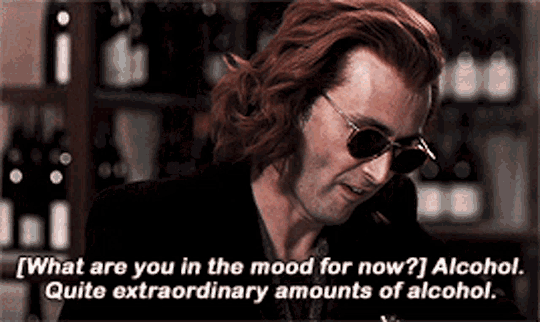
"Alcohol. Quite extraordinary amounts of alcohol." "Sex. Quite extraordinary amounts of sex." Enthusiastic, affirmative consent from Crowley over here. He loves kinky lunch and he's glad you asked, Aziraphale, but he's very, very okay at the moment and wants to go to the bookshop now for more alcohol and, later, for quite extraordinary amounts of alcohol.
"An extremely alcoholic breakfast at The Ritz." A complete sentence in Ineffable Husbands Speak in S2 that Muriel doesn't understand but that we can by this point. Muriel not being able to speak Ineffable Husbands is the point of the moment-- it's to highlight that Muriel is missing information because they don't have the information needed to decode what Crowley is saying or to even realize that there is something to be decoded. It's to point out to us that we have this information and that's why we can understand what Crowley is saying. It, along with "no nightingales", is a moment designed to point out the language and how we can't interpret what we're seeing without being able to understand it. The context of the "us time" scene in S2 helps to reinforce that we have this language correct then also makes it an additional partner scene to the 2008 minisode, as it reinforces this interpretation of the language and the relationship between Crowley and Aziraphale that suggests.
Why does Muriel need to leave the bookshop in 2.06 if Crowley and Aziraphale are going for breakfast at The Ritz? We know it's because breakfast is the latest step they want to take when it comes to dining at The Ritz and alcohol is also sex so the Inspector Constable needs to leave because Crowley is out to have some lunch for breakfast.
Right, so, after kinky lunch at The Ritz back in 2008, we then catch up to Crowley and Aziraphale as they are walking up Whickber Street towards the bookshop.
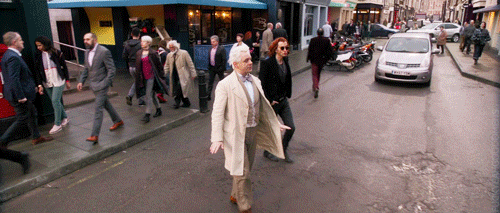
Romantic stroll. They seem to like to go for a little walk together as part of lunch, if they can swing it. In 2008, they're caring a little less because they've just dined at The Ritz for the first time and they have 11 years left until the end of the world, so they're taking some moderate more risks. This might not be always typical of lunch but it is in 2008. They did this on their first date in the Land of Uz, sneaking out of the cellar to take a walk under the cover of night after the storm stopped. They also take a little stroll from the park to The Ritz in 2019 at the end of S1. All three of these times are possible exceptions-- it was night in 2500 B.C. on their first date and 2008 and 2019 are examples of not just lunching but dining at The Ritz, in the sense that they are in an era of being a little less guarded, if still cautious enough to maintain a sense of secrecy. There is a practical reason for the walk, though, as well as well as a romantic one, and that's related to:
The Bentley. Parked nowhere near the bookshop. On a side street somewhere, like we see Crowley has been doing ahead of S2 and is doing during S2 (including the night before the season began.) Crowley staying in the bookshop late into the evening is a given since they're lunching and have already planned to have some alcohol after their alcohol. The Bentley cannot be parked for hours in the evening in front of the bookshop without them running the risk of being caught so, even if they are coming back to the bookshop during the daylight of the mid-afternoon, The Bentley is already parked away from the shop because lunching comes with an understanding that Crowley will be staying in the shop well into the night.
This all seems routine for them at this point. As speculated in another post, this is probably how Crowley became friends with Mrs. Sandwich, whose work has her outside a bit in the early morning hours just outside the side door to the bookshop. Either way, the car is away from the bookshop so Crowley can stay most of the night with Aziraphale.
1921. The year in which Aziraphale bought a dozen cases (144 bottles) of Chateauneuf-de-Pape "for special occasions", as he either tells or reminds Crowley on their walk up Whickber Street. Twenty years before The Blitz.
This is an interesting comment for this exact moment here because one of the two pretty large gaps of time in the last few hundred years in their history is 1862-1941, right? We don't know much about what transpired between their whole breakup mess in St. James Park in 1862 and The Blitz. One of the flashbacks that was cut from S2 might have illuminated some of this, as it was the one set during The Gold Rush in America, which means it would have had to have taken place before about 1893. We know about Aziraphale learning to gavotte in The Hundred Guineas Club in Portland Place in the 1880s, we know that Maggie's great-grandmother started The Small Back Room with Aziraphale's help in the 1920s and we know that Crowley bought The Bentley sometime around 1933. In the midst of all of that, though, there's this one reference to 1921 here in the 2008 minisode that is pretty interesting when you consider why Aziraphale might be bringing it up in this moment.
Aziraphale is saying that he made an investment in the idea of them having a future of special occasions to celebrate together-- in whatever way they could manage to do so-- in 1921, which is a year in which, as far as we can tell so far, he might not have had a lot of hope that this would be possible. They do seem relatively incapable of breaking up for very long but it's also evident that they don't really fully start to get beyond 1862 until 1941 from what we've seen so far so it might have been a bit slow to heal. We do know that they were in contact and not just from the deleted America flashback but from the canonical reveal that Aziraphale got his driver's licence in the early 1930s, after Crowley bought The Bentley. But Aziraphale might be trying to say to Crowley that things didn't seem especially hopeful for them in the early 1920s, either, but Aziraphale has always held out hope.
1941. A special occasion, as that is Chateauneuf-de-Pape that they are drinking in The Blitz, Part 2.
2008. Year in which this minisode about lunching is taking place, when Aziraphale says that there "are a few bottles left" of the Chateauneuf-de-Pape he bought 87 years earlier, implying that they've drunk their way through almost 144 bottles worth of *just* "special occasion" wine *alone* in the last just under 90 years.
"For special occasions." Would be a truly insane way to refer to learning that the world was ending so safe to assume that Aziraphale is wanting to bust out the Chateauneuf-de-Pape in 2008 because what we see in 1.01 is the first time they dined at The Ritz. It was maybe not the most ideal way they'd ever wanted to as it was largely reactionary to learning they were almost out of time but they did it so time for the Chateauneuf-de-Pape.
Chateauneuf-de-Pape. Wine with quite the holy history. Translated from French, means "The Pope's New Castle". The Catholic papacy in early 1300s were big fans of the Burgundy wines in the area, spearheaded their popularity, and used the church to help spur the economic growth of the Avignon viticulture in that area. They drank the wine exclusively themselves and the papacy had been relocated to Avignon so, to an extent, Chateauneuf-de-Pape is something of a "holy water", symbolically. Maybe the antithesis of it-- holy water (water blessed through the power of Heaven) can kill Crowley, Chateauneuf-de-Pape (wine made by humans; symbolic of sex and love and a lifetime of special occasions with Aziraphale) is the stuff worth living for.
Wine is alcohol is, therefore, in Ineffable Husbands Speak, sex.
"Not very big on wine in Heaven, are they?" What Crowley says on their walk to the bookshop, in response to Aziraphale's suggestion that they break out the Chateauneuf-de-Pape.
A very funny line made even funnier by this partner scene in S2:
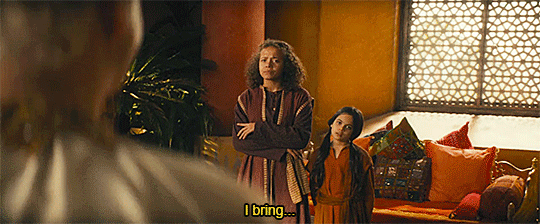
Well, you'd better pop off and get it then, haven't you, Aziraphale? lol
What, exactly, was going on between these two Influencer Brats of Job and their usual angels-- do we even want to ask? Probably not. The way Keziah says "they haven't brought the wine" with that little emphasis makes it feel like it's possible that their usual angels bring some Heaven-blessed wine as a pretense but that 'bringing the wine' is sexually euphemistic. Ennon hitting on Aziraphale adds to that sense by giving us the feeling that Job being God's favorite human means that, prior to the bet, Heaven was sending angels to see to the needs of the family and the elder two siblings have a pair of usual angels who service their, uh, beverage needs. All of which is, objectively-speaking, against what Heaven says it disapproves of (sex, alcohol/drunkenness, etc.), emphasizing the hypocrisy of the fascist state of Heaven.
The Job minisode then serves to reiterate the wine/alcohol = sex throughout the series and makes even funnier the fact that Crowley then drank the rest of the house's existing wine in revenge for these older kids being such brats and Ennon treating Aziraphale like a whore.
What it shows, though, is that maybe the only consumable beverage that Heaven *is* very big on-- if not on drunkenness-- is wine, like many big religions on Earth, right? As a result, Crowley's "not very big on wine in Heaven" line is then emphasized to really be "not very big on sex in Heaven, are they?"
Ok, back to 2008...
"Not very big on wine in Heaven, are they? Or Chateauneuf-de-Papes... Or single-malt scotch... Or frou frou cocktails with little umbrellas..." Crowley's full response to Aziraphale's Chateauneuf-de-Pape discussion on their walk. Translated from the Ineffable Husbands Speak below.
"Not very big on wine in Heaven, are they? Or Chateauneuf-de-Papes..." Not very big on sex in Heaven, are they? Forget music and food and books and our life here with our human things and our special occasions and spending time together, you are going to spend an eternity trapped in a open-floor-plan office building in the clouds with a bunch of prudish religious zealots. Forever and ever and ever... We have, potentially, eleven years until we'll never make love again. You *love* sex and if we don't stop Armageddon somehow, you're never going to come again...
"...Or single malt scotch..." Scotch is whiskey made in Scotland. Talisker, Crowley's favorite whiskey and recurring drink order, is a single malt scotch. So, this is: Not very big on *me*, either. Not exactly like I can just ride the elevator up for a visit... if I even survive Armageddon. You might have noticed Heaven is not tagging everything on their Tumblr #bildaddy. In case it wasn't obvious that this entire time, I've been listing other things you like about life on Earth while under the surface basically screaming "WE WON'T BE ABLE TO BE TOGETHER, ANGEL..."
"...Or frou frou cocktails with little umbrellas..."
Frou frou. American slang for "fancy", sometimes overly so. The American English sister word/answer word to "ritzy". Spoken by Crowley after they've just left The Ritz and as they walk past what will be the American-themed Give Me Coffee or Give Me Death in S2. Comes from America's longest allies--the French-- where it means the rustling sound made by skirts as they move and is onomatopoeia (words derived from the sound they make, rather than rooted in a language.) To reference Scotland, the United States and France within two sentences while bashing Heaven is very Crowley, who doesn't see Heaven as The British Empire or anything lol.
Cocktails. Mixed drinks. What you get when you combine alcohols. Also ties to the scene in S2 with Mr. Brown of Brown's World of Carpets in The Dirty Donkey, which is now a partner scene to this as well. Crowley's "a sherry for you, a whisky for me." It's another example of alcohol as symbolic of sex as Crowley bringing Aziraphale his preferred drink is their attempt at getting Mr. Brown to get the hint that they are a thing and they like now to keep the alcohol just to the two of them.
A cocktail, though, being a mixed drink, can refer in the context of discussion of Heaven and their relationship to the fact that they are an angel and a demon and Heaven is not very big on that particular cocktail.
Frou frou cocktails with little...
Umbrellas. Canopies.
Canopies. The essential setting component of Crowley's Vavoom in S2, as we heard him talking about (while having a drink) with Aziraphale in S2: "You mean like a sudden rainstorm forces them together beneath a canopy... and they look into each other's eyes and realize they were made for each other."
Vavoom. Alternatively: va-va-voom. Voluptuously sexy. Of or portending to sensual pleasure. How Crowley described his hypothetical-for-Maggie-and-Nina erotic-gazing-into-a-passionate-kiss-while-sheltering-from-rain-together-under-a-canopy thing that is absolutely not Crowley and Aziraphale's first kiss recounted back to Aziraphale by Crowley as his definition of romance. Not at all. Crowley just has a thing about tree canopies and their modern rain-sheltering cousins, umbrellas, ok? We didn't just spot The Vavoom hidden there in 1.01 a bit, too. Absolutely not. ;)
"Or frou frou cocktails with little umbrellas" (in Ineffable Husbands Speak). Heaven is definitely not very big on opulent mixed angel-demon drinks like us and our little romance... We're never going to kiss again, angel. Do you really want to spend *eternity* without ever kissing one another again?
According to S2, the answer to that question is that Aziraphale cannot handle the thought to a point of having a complete breakdown of 'what if you were an angel again so we never had to worry?' desperation, so this is probably why Aziraphale's downward hands of 'argh, not right now-- I can't handle this' show up at this point in 2008, as they finish crossing the street and arrive at the entrance to the bookshop.
This is when Aziraphale starts in on his whole "I'm an angel; you're a demon" stuff again but the tone of it is pretty soft and he adds this bit into it:
"We're hereditary enemies." Something which is hereditary is something which you've inherited through no fault of your own and without your agreement. Often, something foisted upon you that you would not have chosen. Aziraphale's comparing their situation to things like hereditary disease-- they didn't ask for it. It's not their fault. The reality of it, though, is still present. This is a way of reassuring Crowley that, even though Crowley could see through the Yay, Heaven! from the earlier St. James Park scene, that Aziraphale doesn't see him as the enemy and would never have chosen this whole mess. He's not yet agreeing to help Crowley stop Armageddon-- the odds are good that he never was going to while they were outside of the bookshop anyway and Crowley knows that. Everything Crowley has said so far is preamble to his argument for stopping Armageddon later on, when they're inside, sobered up, and Aziraphale is ready to work on a potential plan with him.
After "hereditary enemies"...
"Get thee behind me, foul fiend." Blasphemous Bible-speak delivered flirtatiously as a sexual invitation. Not the only scene in the series with blasphemous innuendo but this one line alone could be its own meta so, in an effort to keep this at under 4 billion words lol, we're just going to look at how this is relevant to lunching.
Foul fiend is just Biblical speak for wicked demon. "Wicked" and "demon" are words in the same vein as "wily", "thwart" and "smitten"--words with dual layers of contradictory meanings that Crowley and Aziraphale love to use in their language. To be "wicked" is to be evil in the sense of in line with Satan, yes, but it's also to be playfully mischievous and is a positive adjective used in place of "excellent" at times. To be a "demon" is to be a familiar of the Devil, yes, but it's also to be extremely skillful and talented at a particular thing.
Aziraphale does the whole "I'm an angel. You're a demon. We're hereditary enemies" thing but then turns around and uses "foul fiend"/"wicked demon" in the non-satanic definitions of it through his fond and suggestive tone. He's not calling Crowley evil-- he's calling Crowley playfully mischievous. He's calling him trouble in a light and fun way. He's not calling him a demon in a derogatory sense but in the skillful sense. The same words that mean "evil ally of Satan" also mean "playful and talented"-- Aziraphale has added context by situation and tone of voice/delivery to essentially turn "foul fiend" into calling Crowley "a demon" in bed, in the "skillful" sense of the word. It becomes fuck me, my very wicked demon by use of a suggestive tone.
But it's the use of "get thee behind me" that is most relevant to 2008 here because remember when I told you we'd come back to crepes?
Crepes. Thin, French pancakes. Can be had almost anytime of the day because they are quite versatile-- savory, sweet, for lunch, for dessert, you name it lol. As sexual euphemism, though, we are really looking at how 'pancakes' have been used traditionally by people using food as euphemisms for sex and that is, unsurprisingly, in relation to how a pancake is cooked. I think we've all probably made actual-pancakes-the-food before or at least have seen it done so it probably will not come as a surprise to you that you have to turn a pancake over to griddle it on both sides for it to be done.
As a result, any sexual euphemism involving pancakes is referring to sex that involves a switch from an initial position to a second position that is literally just the receptive partner turning over. So, in order to fully get Aziraphale's love of his romantic French pancakes here, we'd have to have the starting position of crepes and that is something the show actually gives us because why not at this point lol.
"Get thee behind me" after they've spent the afternoon setting up this 1793-inspired crepe-a-palooza indicates that the starting position of crepes is Aziraphale getting done from behind but he'll turn over because he likes to finish his French pancakes facing Crowley.
Vavavoom Yellow. The color of Crowley's eyes and the actual name of the actual paint the actual people involved with this show painted the actual walls of the bookshop. The color Aziraphale turned The Bentley after making it take off its black and silver sunglasses. Crowley's only out here trying to seduce Aziraphale in every other scene by looking at him over his glasses or taking them off or going on about their tantric eye sex into their first kiss... Seems possible Aziraphale might have a thing for Crowley's eyes, no?
"After you." Aziraphale wants crepes for dessert, though. After "get thee behind me, foul fiend", he gestures Crowley into the bookshop with a very witty "after you", which is both politely letting him go first into the bookshop and insisting he is in bed later as well.
Inviting Crowley inside the bookshop with the "after you" in tandem with inviting him inside with the "get thee behind me" is also then using the fact that Crowley is allowed into the bookshop as sexual metaphor for being allowed inside, well, Aziraphale. This gives it a partner scene in S2, when Aziraphale turns The Bentley into a sexual metaphor and is going for the innuendo gold when he then again uses the bookshop to euphemistically refer to himself with "... just as that bookshop is, technically, my shop... but we both get *plenty* of use out of it, don't we?"
God. The only other character on Good Omens aside from Crowley and Aziraphale themselves who speaks Ineffable Husbands Speak. Character responsible for teaching us one of its most important code words-- "nightingales"-- and who ships it so hard that She had a literal nightingale singing as a joke on their dual-meaning-happy language in the S1 finale. Our narrator in S1.
"...while, in London SoHo, an angel and a demon had been drinking solidly for the last six of them." As we cut away from Crowley & Aziraphale's scenes in 2008 to see The Youngs leave the satanic nunnery with their new baby, God points out-- with a hilarious 'oh my stupid children, scared of a baby' tone-- that "The Antichrist had been on Earth for 24 hours." If we can assume that The Youngs were not sent home from the hospital with a new baby in the middle of the night and that it's closer to the more civilized option of a dinner hour, then that would also go with the fact that Aziraphale was having dinner during all of this the night prior, right? Which means it's dinner time, if we're at 24 hours later. Which means that if, in London SoHo, an angel and a demon have been "drinking solidly" for the last six hours, then God is counting the entire afternoon since Crowley and Aziraphale met up for lunch as "drinking solidly" and that's because "drinking" in Ineffable Husbands Speak isn't just alcohol but sex. Yes, that's God making a sex joke. (She has a few more in S1, too.)
"Baby." Term of endearment for a romantic and/or sexual partner that has been documented as having been in existence since at least around the 1830s but was mainstreamed by American jazz, soul and rock 'n roll music and cinema.
While Crowley and Aziraphale are in the alcohol stage of their alcohol, they get plastered on Chateauneuf-de-Pape and Crowley, in a drunken ramble that we will realize by S2 is inspired by Aziraphale's magic words and their conversation in 1941, is going on about what is going to happen to the creatures of Earth when the world ends. He begins to try to say that the fish will be "turned into bouillabaisse" but that word is too difficult for him to say while drunk. While attempting to, he gets distracted gazing at Aziraphale and calls him "baby" in a low voice and then we get their hilarious very drunk kissy faces. Crowley manages to translate "bouillabaisse" in his mind enough to "fish stew-- anyway!" and they sober up soon afterwards to have an actually semi-coherent conversation and some actual alcohol.
In the context of lunching, this becomes getting drunk and distracted by thoughts of later in the middle of trying to talk-- and we know now thanks to S2 that Crowley is also distracted by thoughts of 1941 here at the same time, as he's going on about bananas, fish, and gorillas. We've never heard him call Aziraphale anything but his name or "angel" with the exception of this scene, when they're alone in the bookshop with alcohol on the brain. Aziraphale is drunk but he also doesn't react like it's unusual-- if he heard it, to be honest, as he seemed a bit devoted to stringing together his thoughts related to The Kraken... that great, bigggg bugger, as Aziraphale described him, not at all thinking about the quite extraordinary amounts of buggery they were going to get up to later on.
But, anyway, there's the scene where Crowley calls Aziraphale "baby" in 2008 and that might suggest that he does if they're alone and there's no risk of anyone overhearing it. (As "angel", at least, is theoretically meant to be calling Aziraphale by what he is in a semi-derogatory way but Crowley's honestly never made that work a day in his life lol.)
Thwarting. See: separate meta on my blog on "wily", "thwart" and "smitten" as examples of words with contradictory, dual meanings that Crowley and Aziraphale like to use in the 'angel-and-demon' sense on the surface but in their 'sexy/romantic' connotations in their hidden language. While talking about a plan to stop Armageddon, Crowley uses "wiles"-- the enticing and feminine-leaning-in-connotation definition of "wily"-- in a dry joke where the surface level is about how it's the role of an angel to stop the Evil One (his demon counterpart) at every turn but is really using "wiles" in its seductive definition. He also uses "thwarting" in a way that is substituting it in a sentence for "fucking" on the hidden language level: "You can't be certain that thwarting me isn't part of The Divine Plan, too."
Indeed, Crowley. Indeed.
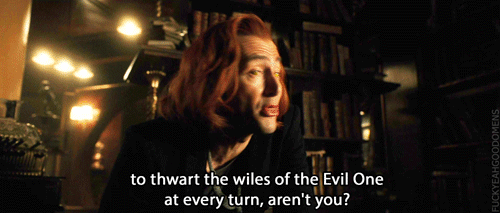
"...at every turn." Ha. Crowley has crepes jokes. Think of all the French pancakes we can have for eternity if we thwart Armageddon, angel...
Godfathers. The 2008 minisode scenes end with them deciding to have a baby. Crowley's like I have a plan to stop the end of the world and it's that we crash this mansion and live together raising a kid like a little family and I've thought of a way you can sell it to Heaven-- whaddya say? And Aziraphale melts into a puddle of sparkly-eyed joy and they have some quippy lines about being damned that feel like foreshadowing for Aziraphale something fierce but this is where we leave 2008. Right here.
After alcohol, but before alcohol, ya dig?
Lunch (in Ineffable Husbands Speak). A recurring date of kinky lunch and spending time together that is pre-determined to end hours later with sex that is at least somewhat decided upon at the start of lunch, often euphemistically through discussion of " lunch food" and/or their romantic encounters in their shared past.
Off of this, let's go look at our partner scene of The Bastille again, now using 2008 to illuminate parts of it.
Paris, 1793. Crowley and Aziraphale playing 'damsel in distress and dashing hero rescuer' in The Bastille. Seven years before Aziraphale opens the bookshop; thirty years before Crowley's dragged to Hell in Edinburgh. They've been getting away with this forever at this point, to a point that while they're still overall cautious and terrified of getting caught, they're starting to think it's possible they never will because they've managed to keep it a secret this long. Aziraphale is dry and arch when referencing the recent "strongly-worded note" he apparently received from Gabriel about doing "frivolous miracles". Even though the note might not exist as this whole scene is, basically, a roleplay game, the attitude there is that they're getting one over on Heaven & Hell and are taking advantage of it.
We all know things like Aziraphale lighting up when Crowley shows up and the "oh, good Lord" while raking his eyes over him-- we're just going to look at some bits here that have more significance in Ineffable Husbands Speak.
As a side note here: the buttons on the black part of Crowley's outfit in Paris also are very similar in style to the jacket he's wearing in the Let's Have Lunch scene in 2008, in a fun bit of visual paralleling between the partner scenes via the costuming. This scene is also a great one for the consistent thing in the series where Aziraphale will casually reference God and Satan ("oh, good Lord"/"luck of the devil" in the Tadfield Manor scene) but Crowley will not ("what the deuce are you doing locked up in The Bastille?").
So, Crowley does his whole haughty and faux-put-upon thing upon arriving and S2 actually makes how he arrives even funnier because he spends the first half of the scene lounging on the floor across the room, which has real Job's cellar vibes. Later in the scene, we get the "well, you're lucky I was in the area" and Aziraphale's reply of "I was", both lines of which are arch as all fuck. They ring with a kind of knowing playfulness that honestly signals the whole thing is not exactly an organic situation. Crowley has come to Aziraphale's rescue out of nowhere before and odds are solid that led to Aziraphale's whole rescue kink awakening here lol but this scene in 1793 is not that. Crowley was absolutely "in the area" with his calendar cleared for whatever sexual hijinks the angel wanted to get up to that afternoon. He's committed to the bit and asks near the start: "what the deuce are you doing locked up in The Bastille?", prompting Aziraphale's response of "I got peckish."
"Peckish", meaning "slightly hungry", but you don't wade through a revolution because you could use a snack so Aziraphale's downplaying it for humor-- he's fucking starving. And not really for food. They have food in England. Aziraphale has intentionally got himself locked up in The Bastille because he's horny, which he's expressing using food terms because of course he is. Ineffable Husbands Speak was created by this dry-humored and self-deprecating duo, one of whom is the Serpent of Eden and the other of whom is a bit of a raging gourmand and, together, they've never met anything consumable that they can't make into sexual innuendo.
To learning that Aziraphale on the surface needed a snack and, in Ineffable Husbands Speak, needs a snack, Crowley has this hilarious response:
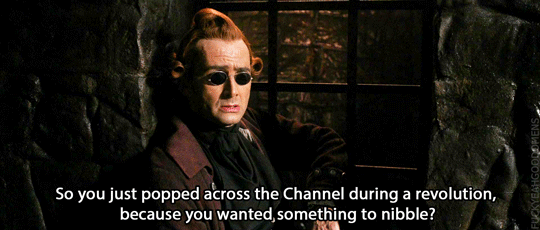
Go on, Crowley, keep pretending like you're offended that this is all just because Aziraphale is horny and like you think it's not specific to you, like you wouldn't let him nibble on you whenever he wants lol.
Tell him he's special, Aziraphale, and not just one of your favorite toys. You dragged him to a prison cell feet away from a guillotine for this.
"Well, if you must know, it was the crepes. And the brioche. Can't get decent ones anywhere outside of Paris." is Aziraphale's quite illuminating reply.
Paris is France and anything Parisian or French is coded as romantic and as related to love to them, even if we know how much they speak around those words. We know what crepes are now from the 2008 scene and we'll look at brioche in a moment but we can already see that this sentence, translated from Ineffable Husbands Speak, is Aziraphale saying that he can fuck his way around the world (and we know it's suggested that he has at times) but he feels that it's never as good for him as it is with Crowley because the crepes and the brioche are better when they're had in Paris-- because sex with Crowley is better for Aziraphale than with anyone else because of how they feel about each other.
Probably also worth mentioning that crepes and brioche both originated in France (many societies around the world have versions of crepes but the crepe itself is French) so this is also really saying it's just always been Crowley for Aziraphale since the start and Aziraphale was alluding to that to Crowley in the Paris, 1793 scene.
Brioche. A bit of a bread, a bit of a cake, it is a bit sweet and rich like a pastry and falls mostly somewhere there on the French deliciousness spectrum between the two and treated by chefs and bakers as a bit of both. As a result, can wind up in many different meals throughout the day, in different ways. Brioche = Crowley, in food form. Can be used to make sandwiches (ha) but is most well-known as the signature bread used to make French toast. French toast is traditionally made the same way as crepes-- involving turning, like pancakes.
Brioche (in Ineffable Husbands Speak). Both Crowley himself, in food form (bread is necessary for sandwiches, after all) and crepes-as-sex reversed between them with Crowley as the receptive partner.
[Crowley is also suggested to be black bread, according to God's narration, in the St. James Park scene, leading me to believe that he's just every kind of bread Aziraphale likes, which is probably most of them.]
Aziraphale invites Crowley to lunch and we know now that lunching was already a thing for them then. True to form, the scene ends with their first step of lunch-- the anticipatory part-- with Crowley asking "what's for lunch?", which we now understand to mean the same thing as "I still owe you one from..." in 2008. He's asking Aziraphale what he would like for lunch and we know already from 2008 that they went out for crepes and had a whole French buffet.

Armageddon: Round One. 2019. Averted. Afterwards, they meet up in a park and swap bodies back unnoticed because we didn't have enough secret sexual relationship stuff already happening on this show lol so yay metaphor and now there's a full-circle back to the bench at St. James Park in 1.01 but now with them having survived and at least temporarily halted Armageddon. Then, as they start to adjust to the whirlwind being over, it's Crowley with:
"Time to leave The Garden." Crowley likening Aziraphale and himself to Adam and Eve-- and just prior to proposing that he and Aziraphale go get their Garden on with a little lunch. Shows that Crowley and Aziraphale are more than aware of how much they parallel the first humans and reinforces that all of the Eden references and related humor in their romantic relationship that we've seen is not coincidental but intentional.

To ask Aziraphale if you can "tempt him to a spot of lunchchch" while opening up your hip to spread your thighs and angle yourself to suggest that your body is also on the menu. Complete with the 'wanna go to bed?' head tilt of 1601 and 2008 fame. I mean...
Meanwhile, Aziraphale's barely conscious of the fact that he's rubbing his thighs and looking at Crowley's lips...
To reply "Temptation accomplished." with a cutely dorky little laugh to Crowley's invitation to lunch. To never be one to say no to a spot of lunch and accept the invitation, while joking around about how neither of you ever actually tempt each other, you just find each other tempting, in the 'attractive' sense of the word.
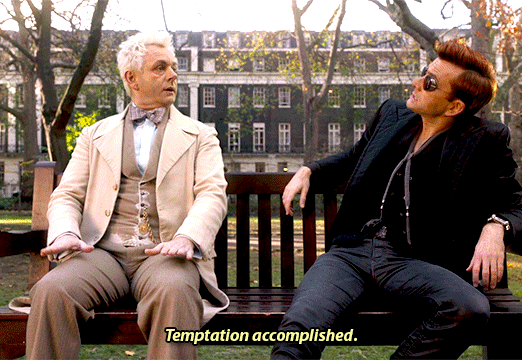
Anticipatory kink. The first part of lunch.
To say that a table at The Ritz has miraculously come free. To suggest that you have 2008/Eleven Years Ago for lunch, coming full circle back to 1.01 in the S1 finale. 2019 is 2008 is 1793 is...
Champagne tea/high tea. The meal that Crowley and Aziraphale are actually eating when they go to lunch in the S1 finale. Features champagne and macarons, both of which are French, adding to the romance and the ties to 1793. There also appears to be an apple-hued tea on the table, nodding to Eden.
PTSD. What causes Crowley to sometimes go quiet and zone out. In 2008, we came in on the end of their meal at The Ritz and Crowley was in the moment. In 2019, we see the start of their lunch part of lunch and Crowley is not at all present. He's facing ahead and staring into space at nothing, exhausted and not in the moment. Aziraphale's partner check-in is different this time, as he can tell that Crowley is not with him. He draws him back to the now with a bit of romance.
"...if you weren't, at heart, just a little bit of a good person." I love you, you know.

"And if you weren't just enough of a bastard worth to be worth knowing." I love you, too.

"A Nightingale Sang in Berkeley Square." Romantic 1940 song containing the lyric "angels were dining at The Ritz" that formed the basis for Aziraphale creating "dining at The Ritz" as a code phrase meaning a more acknowledged and somewhat more open relationship in the future... which they then celebrate agreeing to try by literally dining at The Ritz, in line with their dual layers of meaning-happy language. We're still awaiting the origins of the song as their song but it is to a point that one of them has the pianist playing an instrumental version of it during this afternoon tea lunch in 2019. We also get Tori Amos' cover playing over the scene because dual layers of everything.
Literal nightingale singing. God showing only us the bird that Crowley and Aziraphale don't know is actually singing is the show acknowledging that our perspective is, like God's, on the outside of the relationship but we are now able to understand it. To see the literal nightingale but know what it means both symbolically and in Ineffable Husbands Speak is to see that there are different levels of meaning beneath the surface of what we've been watching.
Nightingales (in Ineffable Husbands Speak). Romantic love. Specifically, Crowley and Aziraphale's word for their love for one another.
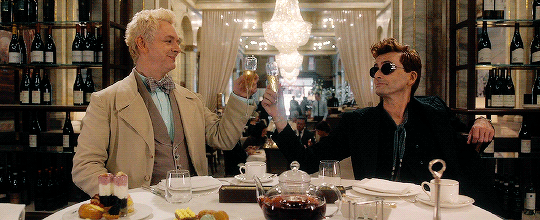
904 notes
·
View notes
Text
Fish: A Good Omens Sex Meta Thing
A deep dive meta on fish and that deathless death.
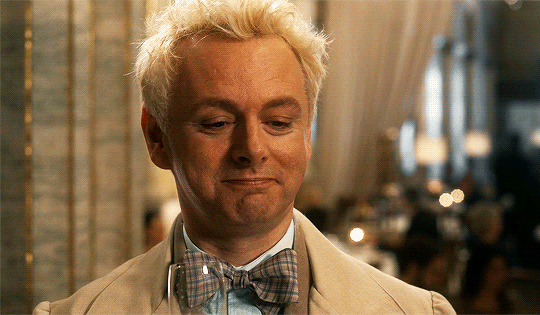

NSFW under the cut. TW: Mention of Satan's attacks on Crowley. Also for those who asked me for more on the Ineffable Husbands and trauma-informed partnership.
Aziraphale, listen to me. The supernatural world? It's a mess. Life under the sea is better than anything they've got Up there...
This is basically the requested "Crepes 2" but you don't have to have read that first. I did link it at the bottom if you have not and you're interested in more meta like this one. Thanks for reading. 💕
Couples. Romantic and/or sexual partners who have an understanding of a mutually-agreed upon level of commitment to one another and their relationship. Frequent celebrators of special occasions.
"A team-- a group; group of the two of us." A couple.
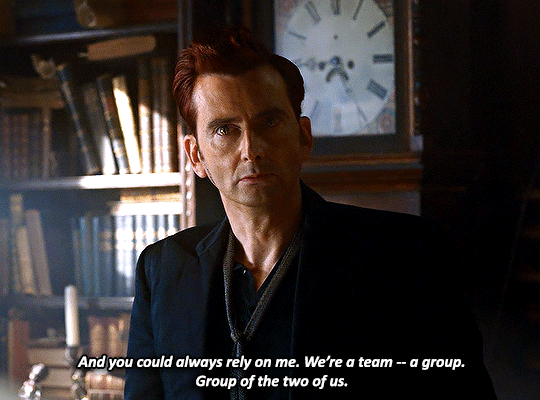
Special occasions. Notable life events celebrating milestones and past days significant to a couple's relationship.
"For special occasions." Why Aziraphale bought one dozen cases (144 bottles) of Chateauneuf-de-Pape in 1921, as he either tells or reminds Crowley on the walk to the bookshop in 2008. Only "a few bottles" were still left at that time, according to Aziraphale, after 87 years of Crowley and Aziraphale celebrating special occasions enough times as an unofficial couple between 1921 and 2008 to have drank almost 144 bottles of the wine they only drink on special occasions.
Wedding anniversary. A special occasion; the "big one" of a married couple's special occasions. Celebrated annually by married couples as a romantic day that honors their commitment to one another. In S2, the day of The Meeting Ball is the night that Armageddon: Round Two gets underway. It is also the wedding anniversary of...
Mutt and his beloved spouse. The lovely magician who owns Goldstone's Magic Shop in 2023 and his beloved spouse, who is dry-witted, trans and had on a dress the color of Crowley's eyes at The Ball. Paralleling characters to Crowley and Aziraphale.
Anniversary. For partners who are not married, usually celebrated as a day of significance in their romantic relationship, chosen for its importance to them. Almost always related to a "first" in the relationship, like the day they first met or on which they had a first date.
"This is The Big One, Crowley..." What Satan (while impersonating the voice of Freddie Mercury) said to Crowley about Armageddon while assaulting him in 2008, on the night Armageddon: Round One began. Crowley was supposed to be having dinner with Aziraphale at the time.
The 1.01 sushi scene. Our re-introduction to Aziraphale in 2008. A series of indicators that we learn throughout the course of the season teach us that Crowley was supposed to be with Aziraphale in the Japanese restaurant on this night before he was delayed by Hell, assaulted by Satan, and forced into helping to start Armageddon.
Various scenes in S1 show us that Crowley always comes up on the same side of Aziraphale if he is approaching him from behind when meeting him but we don't yet know that in the first scenes of 1.01. As a result, we might not immediately realize that the reason why Aziraphale opens his eyes and looks to his left after hearing a miracle chime in this scene is because he expected that it was Crowley arriving to meet him after having been running late. In reality, it turned out to be Gabriel on his right-- which Aziraphale first sees in a mirror and which will be mirrored in additional scenes in the show (Crowley dragged to Hell in 1827 and the Gabriel statue on the other side of Aziraphale, etc.). Dialogue from the scene set the next day in St. James' Park that we will look at later on in the meta also confirms that Crowley was supposed to be with Aziraphale in the 1.01 sushi scene.
The sequence of scenes at the start of the 2008 minisode also sets this up by giving us Crowley alone first and letting us revel a bit in how fun he is and like him even more. The contrast with Hastur and Ligur establishes for us that Crowley is about a trillion times smarter and more enlightened than these guys. It's the second scene with Satan, though, that exists to show us that while some of the demons are just idiots, demonic life for Crowley is actual hell.
The "Bohemian Rhapsody" he so endearingly rolled up blaring in The Bentley comes back and now takes on a nightmarish tone as Crowley receives instructions from Satan while driving The Bentley and we learn that Satan can possess him at will and Crowley's sunglasses-- even in the dead of night while driving alone-- start to make more sense. They're a defense mechanism but he's actually defenseless in the face of this threat. It's from watching Satan get in-- through the radio, taking over the music, speaking through the voice of a non-evil entity, jumping through the air and through Crowley's sunglasses through his eyes and into his mind and rendering his body immobile while he's driving The Bentley-- that we are taught the core of what it means to be a demon in Good Omens.
The demons belong to Satan, in Satan's view. They are part of his collective of souls who exist to serve him. They are not individual people existing independent of him. There is no such thing as bodily autonomy in Hell.
What Satan does to Crowley in 1.01 is a metaphor for sexual assault. It's a forcible attack on his body against his will and without his consent. Though the scene is mercifully short, we are left with the awareness that it is short for reasons of the plot in this instance-- because Armageddon is beginning and the purpose of the attack in this moment is to give Crowley directions on delivering the antichrist baby. The scene, though, shows us that Satan can do this to Crowley whenever he wants and Crowley-- an otherwise very powerful being-- has no known defense against it. Crowley is unsurprised by it and that, plus all his various defensive layers already in existence in 1.01, show that it has happened before. Crowley has been on Earth for 6,004 years in 2008 and the implication here is that these assaults have been happening periodically the entire time and are among the issues most responsible for the PTSD symptoms he shows throughout the show.
It's off of this assault, though, that we segue into our re-introduction scenes of Aziraphale in the present and they are, at the start, the exact opposite of this nightmare that Crowley is living. As Crowley is attacked in his car on a dark road alone at night and then has to narrowly avoiding killing a man in an oncoming truck, we move over to Aziraphale's world, not yet realizing that this is the world that Crowley lives in when he can get away from Hell-- that it is actually their world together.
Aziraphale is presented with the sushi from his friend who has prepared it specially for him and we listen to Aziraphale thank him. The Italian of "Bohemian Rhapsody" (symbolic in this moment of Dante's Inferno and Hell) gives way to Aziraphale speaking Japanese (symbolic of mindful living.) The tone is all kind and gentle-- respectful and peaceful. We then get what is, really, the exact opposite of what just happened to Crowley, which is Aziraphale taking a slow breath with his eyes closed, inhaling the scents of the brine of the fish and vinegared rice and the herbs, and centering himself in the present moment as part of the experience of enjoying his meal.

The immediate contrast is drawn between Satan-- Crowley's rapist, who terrorizes him-- and Aziraphale-- Crowley's partner, who loves him, and with whom he has the kind of consensual, mindful, sensual experiences he was supposed to be getting up to on this night when Armageddon began instead.
In S2, the importance of the sushi scene from 1.01 returns as it is mirrored during the attack on the bookshop. Once again, Crowley is away from Aziraphale when he should have been there by that point and Aziraphale is worried about him. Present instead is, once again, Gabriel. This time, Gabriel has undergone a bit of a Jim journey. (Aziraphale offering him hot chocolate instead of tea in 2.01 was also set up by the sushi scene, as it's off of Gabriel being grossed out by the "rose matter" tea, showing again how important the scene is.) In S2, Gabriel is with Aziraphale again, this time pushed back further into the bookshop, and where are they in the bookshop-that-represents-Aziraphale during the sushi scene mirror? They're upstairs, on the landing.
Specifically, they're just inside the top of the stairs in front of a room, the door to which we are shown several times in S2 but which we have not yet seen open.
We have gone into the room next door to it-- that's the guest bedroom, where Gabriel stayed during the season. By process of elimination and out of an idea of convenience here, the room we haven't been inside of that is located at the very top of the stairs is almost certainly Aziraphale's bedroom. So, we've gone from S1 and having Gabriel show up unexpectedly while Aziraphale mistook him for Crowley while he and Crowley were supposed to be having one of their sexy meals together to S2 and Gabriel now there in the mirror scene in front of their bedroom, drawing a bit of a correlation between what these two scenes are both about.
There's also something symbolic to the idea that S2 uses invitations and doors and rooms in the bookshop to symbolize Aziraphale himself and who he lets in and whose voices he is, for better or worse, listening to at different times-- with his mental health crisis being symbolized by the bookshop being essentially overrun to a point that anyone can now get in. The one room that is shown to us but the door to which never is opened in S2 is the bedroom door. The bookshop can get overrun and others can get deeper into it than we've seen before-- demons in the living room, Maggie and Nina and Gabriel upstairs and in the back kitchen table area like the family they've become-- but the bedroom door stays closed because only Crowley and Aziraphale are allowed in there. No one but them can open the door. Metaphorically-speaking... and probably literally as well.
As the sushi scene is paralleled in S2, we get Shax there bullying Aziraphale. Shax is jealous of Aziraphale and his relationship with Crowley and she also fails to understand it because she sees Crowley as a demon like her and presumes he's as dark as she is, having no idea that Crowley's demonic schtick is an act to survive. She gives voice to these questions (and to Aziraphale's most illogical self-doubts-- but self-doubt is never logical...) when she asks:
"Aziraphale, what *are* you? Crowley's emotional support angel? The softest touch? The one who went native? Do you need more big, human meals, Aziraphale? Shall we send up *the sushi*?"
Shax is actually doing something here, language-wise, that the show first did with Hastur in 1.01, and that's making them both useful idiots when it comes to language. Remember Hastur's mistranslation of "ciao" as Crowley leaves the graveyard with the baby? What Crowley said was, as we know, Italian-- Hastur got that bit correct-- but instead of translating it in his mind as meaning the "hello"/"goodbye" that "ciao" means in Italian, he confused it with its homophone of "chow", which he said "means 'food'." It does but in an informal way or in reference to food given to animals.
This is darkly ironic in the scene because of where Crowley is headed in the next scene-- and where he's supposed to be during both scenes. He's supposed to be "chowing down"/having food-- having dinner-- with Aziraphale and food is, as we'll learn over the course of the 2008 minisode, euphemistic for sex in Ineffable Husbands Speak and symbolic in relation to it in the show itself overall. Instead, Hastur isn't entirely wrong when he translates "ciao" as "chow"-- and he might have done so unconsciously in his mind because he knows Satan is going to contact Crowley with instructions soon. He sees Crowley as "chow"-- in the sense of food fed to the animal that is Satan.
In 2.06, while Crowley is taking Maggie and Nina to safety outside the bookshop, Satan is mentioned when Shax demands that Gabriel and Beez be given to her to take "as gifts for Our Master Satan." Dagon-- Head of the Dark Council and not known for mincing her words-- replies that Satan "wouldn't want them... maybe as hors d'oeuvres." Not a single person in the room-- which contains almost every major non-human character in the show shy of Crowley-- disagrees with this assessment. Rape is not about sex-- it's about power-- but in a show that uses food as euphemistic for sex on several different levels, Dagon's comment is chilling.
It not only takes the attacks on Crowley that are already a metaphor for sexual assault and codes them through food in such a way that the feeling you get from the 1.01 Satan scene-- how it comes with an implication that the assaults aren't always a delivery of instructions-- is correct and that, unsurprisingly, Satan is a rapist in every way possible, but it also sees someone who would know in Dagon state that Satan would not actually care that much about Gabriel and Beez. He'd rape 'em, sure, is what Dagon is saying. He's Satan. But they would be just hors d'oeuvres. They're not who he's really fixated on.
The Grand Duke of Hell who betrayed him and their former Supreme Archangel partner are not interesting to Satan is Dagon's statement and not a single person in the room challenges that. No one says anything about it and the scene is deliberately structured so Crowley is not in the room when it's said to create this reaction in the others... the implications of which are just horrible where Crowley is concerned.
Back to Shax in the bookshop attack scene...
Shax parallels Hastur here because they are using her lack of language skills to highlight something to us by what it is that she doesn't understand. Much like with Hastur unintentionally spelling out what's really going on through mistranslations of words, Shax is trying to bully Aziraphale and she's tossing insults at him that are, actually, in the alternative meanings of what she's saying, the answers to the very questions she's been asking.
"Aziraphale, what *are* you? Crowley's emotional support angel? The softest touch?..." In insulting Aziraphale, Shax is using Crowley's mental health issues as a way of insulting both of them here, which shows how Hell obviously isn't exactly the most trauma-aware place. She's obviously saying that Crowley is comparable in mental health issues to humans (whom the demons see as beneath them) who have a need for emotional support animals. Like Hastur with the "chow", there's an animal comparison being drawn beneath the words used here but instead of the ominous lead-in to Crowley being attacked in 1.01, in S2, we have it about Crowley and Aziraphale, not Crowley and Satan.
So, Shax is calling Aziraphale Crowley's pet, right? And then she calls Aziraphale "the softest touch", which is a phrase meaning someone who is really gullible. What Shax doesn't realize is that the other, human-derived meanings of what she just called Aziraphale are the answer to the question of what Aziraphale is to Crowley.
In British slang, "pet" is a term of endearment. To pet someone is to touch and kiss in a way meant to be sexually arousing-- as in, "heavy petting."
The softest touch. This is, quite literally, the definition of a caress.
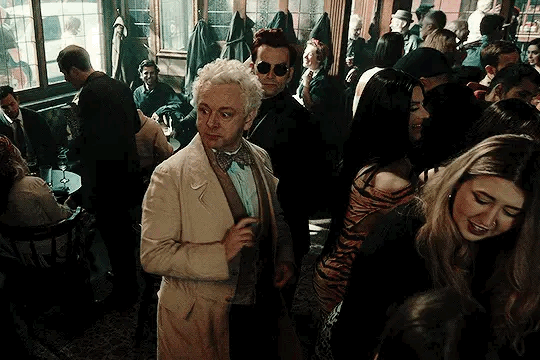
In S2, Aziraphale pats his and Crowley's pet-- The Bentley-- but he pets Crowley. The only time he tries to actually pet The Bentley is when he's semi-jokingly making it a sexual metaphor for Crowley. It underscores that Shax is almost there in getting it-- she's just not quite understanding the meaning of her own words-- which are words that, like Hastur's ciao/chow moment, exist to tell *us* something in how we look at them more than to tell the character speaking something.
In effect, we get a whole scene in S2 that parallels the 1.01 sushi scene by defining some more what it's really all about through Shax not quite fully getting it. What is Aziraphale to Crowley? is her question and the answer is the softest touch, just in the other meaning from the way that Shax says it. Aziraphale is kind to Crowley and gentle with him. He's the mindful sushi night in the face of the horror chow of Hell. They love each other. It's soft and sweet and that's why Shax has trouble understanding it-- it flies in the face of what she thinks the demon Crowley would want because of the reputation Crowley has sold everyone on regarding who he is, which isn't who he really is at all.
"The one who went native. Do you need more big, human meals, Aziraphale? Shall we send up *the sushi*?" Aziraphale is the angel who "went native"-- he lives a mostly human existence with Crowley alongside the humans. Shax clearly doesn't eat that much as no one has ever called sushi a "big meal" lol but besides that bit of humor aimed our way, this is more tying of food to sex. Aziraphale likes food and he likes sex and in Ineffable Husbands Speak-- which Shax does not speak-- food is euphemistic for sex. What's unnerving about this scene in this moment is that it plays like the later scene between Maggie and Shax does-- as if Shax is reading the thoughts of the character she's bullying and lobbying them back at her. She might well be doing this here and that's why the sushi comes up-- Aziraphale is thinking about it because Crowley should be here and isn't and Gabriel is right near him instead and it reminds him of 2008. (This wouldn't be the only callback to S1 in this sequence, either; there's Aziraphale explaining the fire extinguishers to Nina not that long after this.) Either way, it's writing designed to directly correlate this part of the bookshop attack with the 1.01 sushi scene to further underline what the 1.01 scene is about.
Okay, so, let's look then at why we're so into repeating bits of this sushi restaurant scene in GO and what it tells us about Crowley and Aziraphale's story by what other scenes it ties to...
As the 1.01 episode continues, we get another scene pretty soon after the sushi scene which adds another layer to this by recontextualizing our understanding of the sushi scene-- that's their lunch at The Ritz the next day, in which we learn that Crowley is rather into watching Aziraphale eat and Aziraphale loves it. This then helps to explain Aziraphale's look in the sushi scene when he turns to look in the direction of where he thinks Crowley will be on the left, before it clicks that Crowley is not there and he sees, instead, Gabriel on his right via the mirror on the wall.
Aziraphale hears the chime with his eyes still closed. His eyes are then still on the food when he reopens them and he hasn't had time to see that Crowley is not beside him before he turns in that direction and this is the expression on his face as he does:

That is a pretty sexy little look that was indisputably supposed to be given to Crowley...
In the later scene where they're at lunch at The Ritz, we come in on their meal at the end of it. Aziraphale is on the last forkful of his dessert and we get the idea of kinky lunch from what we see on the tail end of it. But before it? Back at the start of the episode, set the night before? We see that everything that happens the next day at The Ritz actually happens because they weren't able to be together the prior night. It will also help us to understand how Crowley knows about "the fascinating little restaurants where they know" Aziraphale in the St. James' Park scene.
The 1.01 sushi scene tells us that, by 2008, they sometimes sneak out to a quiet, dark place where they think they won't be seen to have dinner together.
What's most notable about the set of this scene in the sushi restaurant is the shocking brightness of one color in particular.
The scene leading into it, as we noted, is Satan's attack on Crowley in The Bentley and that scene is, appropriately, very dark. It's pitch black night outside and Crowley, in his perpetual black clothes, half-blends into the night around him. Flecks of grey and silver are the main sources of light in the scene. The same color scheme tips into the Aziraphale sushi restaurant scene-- with two exceptions. The silver grey remains (Gabriel) and so too does the thick, black darkness but there is more light in the restaurant and it shines over Aziraphale. He looks bright against the black darkness, even though he wears beige. He is the light that is missing from Crowley's scene. But that's not the shocking color to us in the scene. That's the one that saturates its way through the darkness around Aziraphale. That color is...
Pink. The color you get when you mix white (Aziraphale) into red (Crowley). Traditionally, a color of love, romance and health.
Pink plume. The energy field emanating from the bookshop when Crowley and Aziraphale performed a miracle together to protect Gabriel in 2.01. Also: part of Mrs. Sandwich's hair accessory during The Meeting Ball. Mrs. Sandwich represents sex and healthy communication in 'The Whickber Street Shopkeepers and Traders Represent The Stuff of Life' thing the show has going on.
"In the pink." A phrase meaning "in good health."
1967. Flashback scene in the 1.03 Cold Open in which Aziraphale gives Crowley holy water and they discuss their relationship-- specifically, trying to be more openly together. The scene is drenched by the pink light from the sex shops (one called the "Love Shop") that were then in the spot where Give Me Coffee or Give Me Death (symbolic of freedom) is in S2.
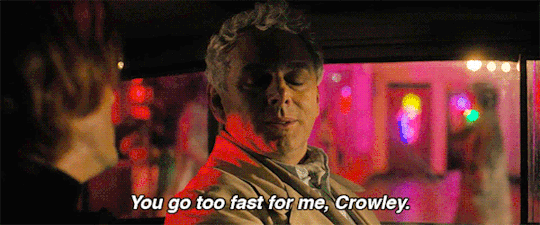
Jane Austen. One of the most famous writers to ever live (sorry, Crowley, but she is lol.) Writer of romance novels. A human that both Crowley and Aziraphale knew in the early 1800s. As Aziraphale brings her up to Crowley while they are talking about romance, pink floods the frame through the clothes on the extras in the wider part of the shot besides him. Pink is also present throughout this scene in general, which already parallels 1967 via it being related to set up, The Dirty Donkey and Crowley's turtleneck.
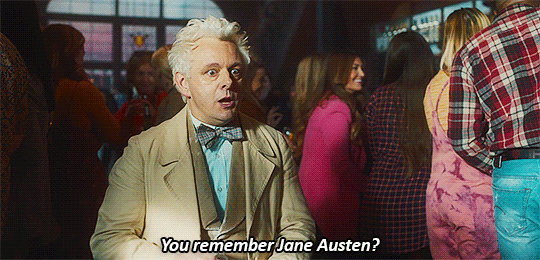
Back to the pink-dipped sushi restaurant in 2008... what else do you notice about this scene that is familiar, now that you've seen all of S1?
Maybe that Aziraphale is actually sitting at a bar? And thought Crowley would meet him there, so they would be sitting at the bar together? Aziraphale also had just spoken at the start of the scene with the restaurant person on the other side of the counter. Where have we seen one of them doing something like that before?
That other rather fish-oriented scene: Rome. 41 A.D....
Rome. 41 A.D.. Aziraphale runs into Crowley in a tavern in Rome. Crowley is miserable and not having the best day of his demon life. Frustrated by the temptations he's been sent to perform for Hell that have him enabling horrible men in the Roman military, he's lonely, tired and grouchy. This initially was worsened by the arrival of Aziraphale, whom Crowley always loves to see but who, in that moment, was a reminder of how broken Crowley felt.
PTSD. Post-Traumatic Stress Disorder. A psychological condition brought on as a result of experiencing the psychological shock of a traumatic event or events. Some symptoms of PTSD include disturbed sleep, difficulties feeling safe, difficulties trusting yourself and others, anxiety, depression, and intimacy issues.
"In the pink." Remember the phrase meaning "in good health'"? Not a lot of pink in the Rome scene... initially. 😉
"Salutaria." What Aziraphale says in toast as he and Crowley clink glasses. Means "to your health." Crowley clinked glasses but quickly looked away, leaving Aziraphale thrown in the moment as to why Crowley was not rejecting his presence entirely but seemed uneasy and was putting up some walls between them that he had not in this way up to this point.

So, why was Crowley doing that?

Anorgasmia. Modern, clinical umbrella term for all issues relating to disorders surrounding an individual's ability to orgasm. If physical or medicinal reasons are eliminated, however-- as they often are-- then anorgasmia is a psychological mind-body disconnect.
Not an arousal disorder. Sufferers of anorgasmia still experience desire, compounding the impact of the disorder.
Secondary anorgasmia/situational anorgasmia. The inability to orgasm unless under certain conditions, such as through self-stimulation (masturbation). The inability to enjoy partnered sex. Extremely common in rape/sexual assault survivors.
(Diagnosis for anorgasmia are related to biological sex but Crowley is able to switch that at will so he'd be both of these, which are fundamentally the same thing.)
Hot Water Boiler. Device which heats up water in a house or apartment. In S2, a metaphor for anorgasmia.
In S2, Shax is living in what used to be Crowley's apartment and asks him if he knows how to fix the hot water boiler, as it has "two yellow lights" and isn't working. The point is that this used to be Crowley's apartment. Crowley, in 2023, knows how to get beyond a bout of it. He's fixed his own metaphorical hot water boiler-- and also the literal one when he used to live in that apartment. And while he's being sarcastic because Shax won't stop hounding him and Aziraphale, he's also giving her the most sage advice he knows, as he has continuously been doing during the season. In this case, it's to self-love a bit (which is actually prescriptive for anorgasmia in our modern times as well.) That he does is suggestive of the prior issues with secondary/situational anorgasmia.
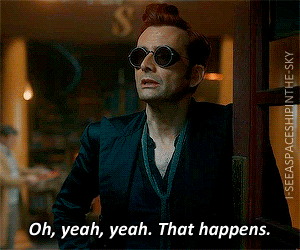
Alcohol (in Ineffable Husbands Speak). As we looked at in the Crepes meta: Surface layer: alcohol. Hidden language layer: Sex. Quite extraordinary amounts of alcohol. An extremely alcoholic breakfast at The Ritz.
Whiskey. Alcohol. What Crowley orders in a bar. Usually Talisker, which is a single-malt scotch. (Scotch being whiskey made in Scotland.)
Broken bottles of whiskey. What was in the case Crowley brought Mrs. H in 1941 at the start of the sexual metaphor that is The Bullet Catch.
Trauma-informed partner. Modern term for a romantic and/or sexual partner of a trauma survivor who is aware of the pervasive nature trauma can have on a person and who endeavors to provide a sense of safety-- physical, psychological and emotional-- for their partner and to create a relationship centered on healing and recovery, rather than one that causes further distress.
Frequently survivors of one or more forms of abuse themselves, as Aziraphale is. Not expected to be perfect but just to do their best by their partner.
Characteristics of trauma-informed relationships include kindness, empathy, mindfulness, gentleness, well-earned trust, a sense of playfulness, and a well-developed shared sense of humor. (Sound familiar? 😊)
The Bentley. Crowley's car and Linus blanket. As sexual metaphor, when Aziraphale is feeling cheeky: Crowley himself.
Driver's license. Documentation that must be obtained in order to operate a motor vehicle. Requires permission, experience, necessary skills, and willingness to learn. In London, not originally necessary to drive upon the invention of cars, until everyone realized what an absolute disaster that was. Aziraphale long ago passed his test and has had a driver's license since shortly after Crowley bought The Bentley. They did not require licenses at that time but always-eager-to-be-thorough Aziraphale made them give him a test to be sure he was truly qualified to drive.
As sexual innuendo: Crowley, we're absolutely ridiculous. You won't give up your car and I wall myself off in a fortress of books I can't part with but you've been "in my bookshop" and I've been "driving your Bentley" for an absurdly long amount of time. We even swapped bodies a few years ago. It might not actually be possible to be any more intimately familiar with a person than we are with one another and we both know I had these car keys the moment I asked for them so hand them over. No one was exactly a trauma-informed partner in those days but I was-- aren't I marvelous?😉I'll treat your car as gently as I treat you. Give me the keys or I will just keep going until I run out of car sex innuendo and I should warn you that I have lots more...
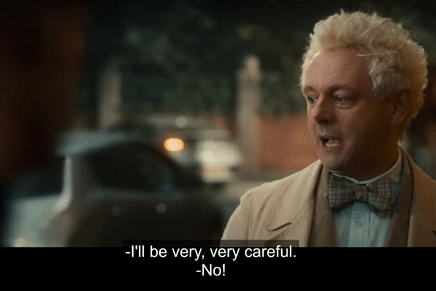
Trauma-informed partner. Aziraphale.
Mindfulness. A state of mind that focuses on being in the present moment by being conscious of one's thoughts, emotions, and bodily sensations. A state of the mind being connected to the body and experiencing the present moment consciously and fully. Frequently used to help combat PTSD, anxiety and depression. Also frequently used as a therapeutic intervention for assault survivors experiencing intimacy issues.
Aziraphale and Crowley smelling the magic shop in Season 2 and Aziraphale inhaling the scent of the sushi in 1.01 are both examples of mindfulness exercises. The sushi scene is tied to sex, as the food kinky thing is a form of foreplay, suggesting a focus on sexual mindfulness in bed.
Mind-body connection. What is in need of repair in sufferers of situational/secondary anorgasmia. Sexual assault causes the body to associate a loss of control with being under threat. Whereas people who have not experienced a violation of their bodily autonomy tend to respond to sexual stimulation with a response of pleasure, those who have been hurt have bodies that are wired to react to being touched or to feeling out of control as if they are under threat again, even if they are intellectually aware that the new situation they are in is not dangerous. What is arousing for others can cause a sense of anxiety instead of pleasure. There is also the risk of flashbacks to being attacked.
Healing the mind-body connection requires a trusted partner with whom the person suffering from anorgasmia feels safe and who is willing to help keep their partner in the present moment and help them "re-wire" and recover their body through new, positive experiences.
Asmodeus. The Demonic Prince of Lust. Crowley. A persona to have in Hell to give him big reputation that didn't involve him having to kill anybody and that also acted as a cover for his anorgasmia.
"Crowley." What Crowley asked Aziraphale to call him in 33 AD, just 8 years prior to Rome. An admittance of being mad about Aziraphale.
"What am I supposed to be, an aardvark?" In Rome, as Crowley grows nervous by this wine-drinking Aziraphale who also has nothing to do for the evening that has shown up in his world on a miserable day, he responds to Aziraphale's "still a demon, then?" nervous chatter with a line of his own, asking what else he was supposed to be? An aardvark? Of course, if Crowley was not a demon, being with Aziraphale would be easier and he wouldn't be in this mess in the first place but an aardvark is not just a random animal that Crowley thought up here.
Just prior to this moment, Aziraphale had approached him with "Crawley-- Crowley" and a soft smile. It wasn't actually a mistake on Aziraphale's part but a silent question: is it still alright to call you that? Thanks to S2 and the Job minisode we can see the 33 A.D. scene- in which Aziraphale learns of Crowley's new name-- in a different way. We see it as Crowley romancing Aziraphale a bit-- responding to Aziraphale being obviously a little jealous of Crowley's reputation as the wild Asmodeus with a whisper of how he'd changed his name to "Crowley"-- something that we know now that only Aziraphale understands. In Rome, eight years later, Aziraphale is asking by saying both names if that's still something Crowley feels-- and silently saying he hopes it is by subtly asking and by flirting with him a bit.
Crowley doesn't object to Aziraphale calling him "Crowley" and that encourages Aziraphale to join Crowley, who sends signals that he wants his company, even if he's grouchy. Maybe especially because he's grouchy. He can be grouchy around Aziraphale, who is his friend and will listen.
Aardvarks. Primarily eat ants and termites. In the insect metaphor in the show, humans are ants. (The "ants go marching" of The Flood scene.) Demons were hornets in this analogy but also flies and one could assume that termites might also be a good demonic insect analogy, as termites eat decaying plant material and demolish the dying down into the ground. Since food is sexual metaphor on Good Omens and living creatures are metaphorical in multiple ways, being an aardvark then is being someone who both fucks and kills other demons and humans. Being an aardvark is actually a good metaphor then for what's expected of Crowley in Hell and he obviously has some issues with it.
He doesn't want to kill anybody and he's sitting there wearing Roman military regalia, having been sent by Hell to facilitate some death and destruction in a way that he hasn't been able to Bildad his way out of this time. Aziraphale's presence is always welcome but Crowley's crabby in this moment because he knows Aziraphale is in a place by this point where he wants to sleep with him and they just ran into each other in a tavern and both clearly have the night free and now Crowley's got to decide if he's going to tell the angel or not that he's a disaster of an aardvark.
Aphrodisiacs. A substance purported to increase sexual desire. Named for the Greek goddess of sexual love and beauty, Aphrodite, who has been depicted since antiquity usually nude and on the shell of an oyster (or, occasionally, a scallop), as both are two of the oldest purported aphrodisiacs known to man.
Oysters. History's foremost food-related aphrodisiac... though that's not really proven. A few years ago, Italian and American scientists did a joint study to attempt to prove if oysters really did increase virility. What they found was a very minor increase in testosterone in men brought on by one of the compounds of oysters (which is also found in some other kinds of shellfish.) The difference was so small, though, that the scientists determined that an individual would have to consume a lot of oysters (like, a bucketload) to notice any significant difference. In other words?
Whether it works or not is, like with almost all aphrodisiacs, in the mind of the individual. If you believe it will work, it likely will. It's mind over matter. If you want it to work, it probably will. Thematically, an interesting thing to throw in a scene involving a character deciding he's in a place to work on overcoming psychologically-based anorgasmia.
The ancient Romans were obsessed with the oyster-- particularly the soldiers of the Roman military. Much of the cultural awareness of oysters as having a reputation today as being sex-boosting food is actually rooted to the beginnings of that trend in ancient Rome. Both Crowley and Aziraphale would have been aware of the reputation of the oyster in 41 A.D. and Crowley wearing military regalia might have been one of the reasons, in particular, that Aziraphale chose oysters as an euphemism to convey his meaning.
Oysters. Fish. To eat them, you have first got to get them out of their protective shells.
Adam and Eve. The first humans and the other inhabitants of The Garden of Eden. Parallels to Crowley and Aziraphale. Eve gave Adam food-- showed him the pleasures of eating the apple. It sent them on a path of sensual exploration and Adam, freed by Eve showing him food, gave her sex in return.
The other two in Eden at the time-- The Angel of the Eastern Gate and The Serpent of Eden-- are actually no different.
Crowley tempted Eve but Crowley also parallels Eve to Aziraphale's Adam. Crowley encouraged Aziraphale to try the ox ribs and unleashed the raging hedonist that Aziraphale can be. Rome in 41 A.D. is Aziraphale then realizing just how much they are Adam and Eve. (Something that they become aware of over time and is at the root of things like Crowley dryly saying that it's "time to leave The Garden" in 2019 in S1, when they leave a park to go have kinky lunch together.)
By Rome, Aziraphale is now a devoted gourmand. He also drinks now; he's tried wine at some point in the interim years between the Job minisode and this scene. (This is the first scene in which both Crowley and Aziraphale drink and the first time we see them share a toast-- something that becomes symbolic of them as lovers in scenes in the future, like its parallel scenes in 1941 and 2019-- furthering the suggestion of Rome as the start of their sexual relationship.)
Aziraphale might be in Rome on Heavenly assignment but that's not what he mentions to Crowley, if he is. Instead, he talks about Petronius, whom he assumes from Crowley's military clothes that Crowley will know and whom Crowley does. If referring to, as we suspect, Gaius Petronius Arbiter, then Aziraphale is referring to a being so queer even the historians can't get around acknowledging it-- a courtier who was the taste and style maker of the Roman empire, and who is believed to be the author of The Satyricon, which is basically the foundation of satire in literature but also famously contains a whole chunk of it that is just basically erotica.
Some details of Petronius' life are a little vague so Good Omens is exploiting the wiggle room here to suggest that he actually did own a restaurant. In reality, Petronius wrote in The Satyricon a description of ancient Roman feasts that have been seen as maybe barely satirical because of the whole bacchanalia of the period that Petronius was satirizing. So, by 41 A.D., Aziraphale is moving in wealthy human queer circles in ancient Rome and enjoying all of the pleasures life on Earth has to offer... and he's found Crowley alone in a tavern and is throwing as many of these things together in a sentence at one time as possible to convey an overall sense of would you like to join me?
The Job minisode has already happened. Aziraphale is more than aware that Crowley was enjoying watching him eat. They're both here with the night free and blending in amongst the crowds has never been easier than it was in highly-populated Rome. Aziraphale is used to picking up humans and it's different than it is with Crowley, who is quasi-immortal like he is and his friend and somebody for whom Aziraphale has feelings. There's also something funny about the fact that Crowley is in a (literally) hellish mood and Aziraphale is pretty undeterred and still goes for it. In attitude, Aziraphale is basically like You're in a terrible mood--you need to get laid, Crowley. Lucky I showed up, isn't it? 😂
Meanwhile, Crowley is fully aware of what Aziraphale is up to. He's known since he heard Aziraphale approaching him and has been mulling over how he's going to handle it. The grouchiness isn't just about his bad day-- it's anxiety manifesting as crabbiness. To his credit, Aziraphale seems to get that even before Crowley more specifically shares the source of that anxiety.
So, Aziraphale goes for it and how he does is to pick up on their way of speaking to one another euphemistically that they started in Job's courtyard and introduce food as a way of speaking about sex. This is already amusing in S1 but it's funny as fuck after S2 when we know that the ox ribs have already happened at this point and that that's why Aziraphale is going this route. Aziraphale's like how to see if Crowley wants to smash? Tell him I'm hungry wink wink... 😉
I would also like to point out that they are already in a tavern that sells food. In the wider shots of Crowley in the second half of the scene, a plate of food is on the table beside him. There are oysters *in this bar* lol. Oysters were not uncommon in ancient Rome by this point-- if this conversation were really entirely just about trying this particular kind of seafood, they could just order some from the woman who served Crowley his drink who is three feet away for the entire scene and try oysters right here.
By bringing up Petronius and another restaurant where they sell sexy fish, Aziraphale is laying down an ancient Roman, euphemistic equivalent of do you want to get out of here?

To tell Crowley that he [Aziraphale] hears that Petronius "does remarkable things *to oysters*." To ask Crowley to go to bed with him.
Specifically, to see if the food kinky Crowley wants to go with him to Petronius' new restaurant and try these oysters the human guys are so on about and then go back to where Aziraphale is staying and see if the oysters really do anything to their oysters.
With this one sentence, Aziraphale has just turned "oysters" into three specific, separate-but-interrelated things at once:
1) oysters are fish-- just the seafood itself-- as we're always also talking about the thing on the surface level as well in Ineffable Husbands Speak and this is no different. Petronius makes some yummy oysters, according to the restaurant reviews of ancient Rome, and his new restaurant is an opulent food orgasm of a place and Aziraphale correctly thinks that would be appealing to both of them. He loves to eat and Crowley loves to watch him eat and does Crowley want to go on a little date to do that-- just also with actual sex this time?
2) oysters are aphrodisiacs-- Aziraphale is bringing up the fact that everyone is talking about how eating oysters can increase your sexual desire and bring about more pleasure for you and your partner(s) in bed. Aphrodisiacs are evocative of partnered sex. Not that you can't take them for fun times on your own but most people do not so bringing them up then sets up the verbal italics of "to oysters" that lands Aziraphale's invitation, unintentionally, straight in the heart of Crowley's issues, because:
3) oysters are a partnered sex orgasm-- Aziraphale says he (Petronius) "does remarkable things to oysters" so Petronius makes delicious oysters, which are what you eat to increase sexual desire and therefore what apparently cause you to experience more pleasure for longer and to climax harder... the innuendo is that the oysters (the aphrodisiacs) do things to your oysters (your orgasm).
Surprise twist, Aziraphale...
Crowley has made sure it never occurs to anyone that he has problems in bed and that has included Aziraphale up to this point.
Crowley basically now has a couple of choices. He can gently rebuff Aziraphale's offer, hopefully without embarrassing him too much, and they can try to pretend this never happened, and then he knows that Aziraphale is probably never going to ask him again. Not an option. Who knows when else they might find each other with the night free like this again? and Crowley does want to try.
He can pretend there's nothing wrong with him and stress himself into a disaster, like he's probably tried to do with humans before but they die within a couple of decades and take the embarrassment with them but Aziraphale's going to live for ages, is really his only friend, and Crowley's in love with him. Crowley's self-sabotaging at times but he's also an optimist and a romantic, and it's those things that give him some hope that he might not be permanently broken.
Finally, there's that he can just tell Aziraphale the truth because, let's be real here, the angel wants to try it and like hell is Crowley saying no to that.
So, he doesn't.
(Note the red squiggles on his costume that look pink in the light and like a heart monitor jackhammering-- with anxiety, with arousal-- and the candle that burns a pink flame where the light hits the jug.)

"I've never eaten an oyster." Aziraphale has defined an oyster between them as an orgasm had during partnered sex and that is what Crowley is saying he's never had.
He's also possibly saying that he has never eaten an actual oyster-the-seafood, because even though they were pretty common in Rome in the era, Crowley eats less than Aziraphale does, apparently hasn't been in Rome that long, and has had, until this moment, no reason to try the fish everyone is throwing back to try to increase their sexy times as Crowley's just been avoiding any sexual situation like the plague.
This is both a leap of faith on Crowley's part and a moment indicative of just how much he trusts Aziraphale. He needs every other living being to believe he's Asmodeus but Aziraphale can have the real, unvarnished truth because Aziraphale is the only person Crowley trusts not to hurt him. He knows Aziraphale can keep his secrets and that they have their own private world where vulnerability is allowed. He knows that Aziraphale is his friend beyond anything else.
This is telling Aziraphale that he'd like to try but he's kind of a mess. He doesn't want Aziraphale to feel like it's his fault if this doesn't work and he wants him to know what he's getting into. Crowley has long harbored a suspicion, though, that it would be different with Aziraphale, which is also why he wants to give it a try. If the angel can't help him rewire himself here, no one can.
Emphasizing this is Aziraphale's reaction. If they had been talking about pizza, maybe this reaction would have fit lol but it's clearly not a reaction to learning that Crowley has never consumed one particular kind of squiggly, hard-to-eat, honestly not that great seafood. It's a reaction much more befitting learning Crowley has not experienced something far more delicious and life-affirming than actual oysters-the-seafood.
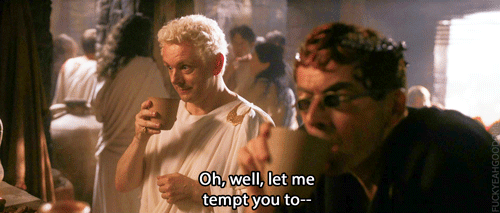
"Oh-- well, let me tempt you to--" Just consider this moment from Aziraphale's perspective for a minute...
Serpent of Eden Crowley? He is literally the spark that lit the flame of all of humanity here. By tempting Eve into free thought and sensual pleasure, he also empowered her into teaching Adam these things. As a result, Crowley is basically responsible for sex on Earth-- for all of its history. If you live in the Good Omens universe and you've ever had an independent thought, a sensuous experience, or an orgasm, you owe Crowley a thank you note.😂Every play Aziraphale has ever seen, every meal he's ever enjoyed, every human he's ever taken to bed-- all of those experiences are indirectly because of Crowley.
Aziraphale has wanted him for quite literally ever. He compares everyone else to him. No one else has ever made him feel like this. He knows they're attracted to each other but he never felt like he knew what, if anything, he had to offer Crowley. The hottest being he'd ever seen freed him from the prison of his own repression here-- what could he ever give Crowley that was worth something like that? How do you learn together and try new things and adventure together with someone who seems like they're leap years ahead of you and know all the things it took you a long time to find out?
It's at "I've never eaten an oyster" that Aziraphale realizes that the being who freed everyone else got left behind and Aziraphale can fix that. He is good at burning holes in prison walls. Protection and arming others against threats to them and healing and kindness-- that's what he does. He's been here thinking for ages that Crowley would never need anything from him that he knew how to give like this but now he sees it differently. They've shown each other already by this point that they're good at being partners but this one aspect of it always felt to Aziraphale like it would be imbalanced. In Rome, he realizes that it isn't.
Aziraphale doesn't have the vocabulary we have today for these sort of issues and Rome wasn't exactly a bastion of trauma-informed sex lol but he didn't need any of that because he's intuitively good at this. He already knows that it will be fine because Crowley doesn't know it yet but he effectively already told him that it will-- by telling him in the first place. Aziraphale knows that trust and desire are what's needed and that they have those in spades. All he really has to do here is help Crowley relax and get out of his head.
Or, as Aziraphale will put it during the 1941 sexual metaphor that is The Bullet Catch plot: "You do the shooting. I'll do all the hard bits."
What gets Crowley's attention in Rome is how utterly confident Aziraphale is. How empathetic but unpitying. Aziraphale doesn't hesitate and he trips over himself accepting the challenge-- which is awfully cute-- but it's that Aziraphale doesn't treat him like he's broken or seem to see this as daunting that works for Crowley. There is a lot of internalized shame and fear and pain associated with anorgasmia and Crowley has been stewing in this for a very long time up until Rome so for Aziraphale's response to be not dismissive of it but, instead, reassuring, was exactly what Crowley needed. Aziraphale's whole attitude is oh ok no problem should we get going now or..? While he was not happy about Crowley having had difficult experiences before because he doesn't like to think of him in pain, he was really into the idea of Crowley thinking it could be different with him.
Aziraphale really, really, really likes being the person Crowley let in enough for this. Pardon the Crowley pun here but Aziraphale has never stopped crowing about it between them in thousands of years and if Crowley weren't besotted with him, he would have murdered him over it by now. (See: an example in 1941 that we'll look at near the end of this meta and "I had to miracle in the cherries" in Good Omens: Lockdown.)
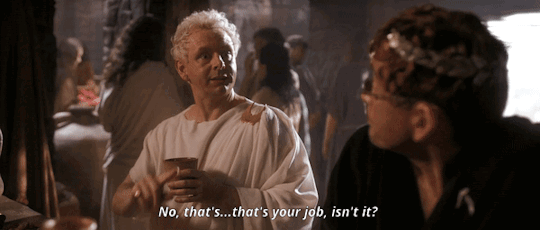
"No, that's... that's your job. Isn't it?" Aziraphale's use of "tempt" to offer Crowley sex is then something of a joke between them because neither of them are tempting each other in a demonic sense of the word at any time. They find each other tempting though, in the sense that they find each other attractive. To use "tempt" with one another is just to ask each other if they are in the mood for something, not to influence the other into doing anything ("tempt you to a spot of lunch?" and "temptation accomplished" in 2019.)
This is really established first in the Job minisode, chronologically, as Crowley didn't so much tempt Aziraphale to try the ox ribs so much as he just offered them to him and Aziraphale decided to without influence. The same is true for Crowley choosing to try sex with Aziraphale in Rome-- he's really already chosen to by not saying no and that's all before Aziraphale's "well, let me tempt you--".
When Aziraphale replies to Crowley's reaction to the "tempt" line with "No, that's... that's your job. Isn't it?", Aziraphale is teasing him a bit. He's saying he sees through Crowley's massive control issues and that he gets him. You always have to be in control but you don't always want to be. Well, today's your lucky day, Bildad, because we're partners in this now.
Or, as it's known in 2023:

Flame burning pink as Crowley smiles a little for the first time in the scene:
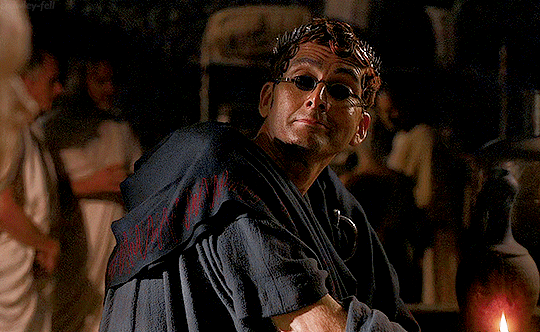
"Oysters! Oranges!" What Juliet (the woman selling snacks) calls out as the opening dialogue in the 1601 scene to entice prospective buyers, the only one of which really is Aziraphale. Oysters-- aphrodisiacs. Oranges-- cinematic symbol of death. Aziraphale chooses...
"Some grapes please! They look scrummy." Grapes. Fermented grapes are wine. Wine is alcohol. Alcohol is sex. We haven't a need for oysters anymore and we shun symbolic death in favor of the little death. The grapes look "scrummy", shortened version of "scrumptious", meaning both "delicious" in food terms and "sexy enough to eat" in people terms. Aziraphale eats them in front of Crowley during the scene.
Oysters. What Crowley and Aziraphale had in ancient Rome.
Oysters. What Crowley and Aziraphale had in ancient Rome.
Oysters (in Ineffable Husbands Speak). Both an aphrodisiac and an orgasm, but...
...since they don't want to bring up anorgasmia every time they're flirting or talking about sex for the rest of their very long lives... and since oysters on their own are really hard to work frequently into conversation and would get a bit old pretty quickly, they need another word.
So, based on what we've seen in the series, it evolved into...
Oysters = Fish.
Fish live in the ocean, amongst other sea creatures.
Fish & sea creatures (in Ineffable Husbands Speak). An orgasm.
Anything related to the ocean (in Ineffable Husbands Speak). A metaphor for sex.
If it is in or lives in water, it's prime material for climatic innuendo. If it has multiple meanings in English? It will be used frequently as part of wordplay. If it pertains to the ocean or lends itself to destructive adjectives (shipwrecks, sea monsters, bubbling seas and rising waves), it will absolutely be a sexual metaphor at some point.
Such as...
Wahoo. A kind of fish. Also: an exclamation of joy. For obvious reasons, Crowley and Aziraphale's favorite fish joke.
In 1941, Aziraphale seeks feedback in the dressing room on their sexual metaphor Bullet Catch performance-- that they are both more than aware of-- and Crowley agrees that it went well and dryly suggests they "chalk up a win for the side of the angel", turning the common phrase that is usually "...side of the angels" singular to reflect only Aziraphale, who is over the moon that Crowley enjoyed it and cheekily replies "wahoo!" before their flirting is interrupted by Furfur.
Decades later, Crowley gives another stellar performance-- the full, epic saga of his M-25 Orbital Disruption-- to the joyless, miserable lot in Hell and concludes it with a line that he plans to tell Aziraphale later to make him laugh:
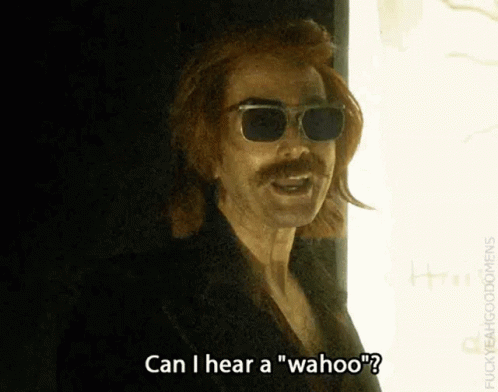
Carp. A kind of fish. Also means: to stand around and bitch. Aziraphale telling Crowley to stop standing around getting off on grouching and go get Maggie and Nina for The Meeting Ball in S2.
Gravlax in Dill Sauce. Cured salmon. This one is special and we'll look at it in the Dill Sauce meta about the St. James Park scene soon.
Ducks. Waterfowl. Aquatic birds. This is long enough. 😂 They are a whole separate meta.
Pickled herring. A kind of fish, cured in salt. What was dumped out of the barrel by Elspeth in The Resurrectionist minisode so she could use the barrel to transport her corpse. Crowley and Aziraphale spend half the minisode dragging around a barrel that should contain fish (the little death) but actually contains a corpse (actual death)-- foreshadowing the fact that their date will end with Crowley dragged to Hell and the start of the holy water arc of misery for them.
Red herring. A dry, smoked fish that turns red as it is smoked (ooh la la...) 😉 Also: A literary device, in which something is established with the intent of it distracting the audience from something else in the story. Elspeth and her pickled herring barrel are a red herring that changes The Resurrectionist minisode story from what the audience thought it would be into what it is, distracting the audience from the fact that the story actually began with Crowley and Aziraphale meeting in a graveyard at midnight for... ah... reasons. Aziraphale also turned 'red'-- turned to Crowley's side-- during the course of the episode, even as his shot at getting him some "pickled herring" that evening went up in hellfire smoke.
"Sargeant Shadwell." The hilarious, Sean Connery-esque way that Crowley said Shadwell's name in 1967, made funnier by the fact that a shad is a type of fish... and part of the herring family and this scene itself is a red herring. It misleads the audience into thinking we have a whole new plot about Crowley leading a break in to a church that is rendered inert within a matter of minutes when Aziraphale gives Crowley holy water. Shadwell's name is basically 'Fishwell' and, for Madame Tracy's sake, I hope that's true and not ironically funny. Either way, doubtful that Crowley and Aziraphale haven't joked about his name before. Shad also phonetically sounds like 'shag', the British slang word for fucking, and Crowley's tone of voice in the scene had a ring of 'shag' connotation to it.
Kieler Sprotte/Kieler Sprotten. A German smoked herring dish. A hidden reference in the Baraqiel entry in 'The Demon's Guide to Angels...' book that Furfur had in 1941. Baraqiel is Crowley and the entry, based on what's in it, was written by Aziraphale. One of you requested a meta on Baraqiel so that's on deck for now.
Newt. A semi-aquatic salamander. They live in the water but only some of the time. Also: Newt Pulsifier, an extreme parallel of Crowley who breaks all technology he touches, loves his less-attractive-than-The-Bentley car, and falls for a being who has issues with the purpose they feel they were put into the world to fulfill. Newt gets "in the water," metaphorically-speaking, when he has sex for the first time in S1 with the Aziraphale-paralleling Anathema, which is another example of how he's a more extreme version of Crowley, whose parallel to Newt is Aziraphale helping him through his intimacy issues.
Flounder. A kind of fish. Also means: to struggle helplessly in water. "To flounder" is frequently confused with "to founder", which is wordplay intentionally being used by Aziraphale in the "Seeds of Destruction" scene in S1, which we'll look at in the requested Seeds meta soon.
Bananafish. A kind of fish. Also: the first two words of Aziraphale's magic words. Is it "bananafish" or is it "banana, fish"? It's a little unclear and possibly situational. It's also likely both and a reference to wordplay and sex via fish. "The Bananafish" is also a short story by J.D. Salinger about trauma, PTSD and suicide that correlates to S2 quite a bit but we can look at that in a more Aziraphale's-trauma-centric meta.
The 'drunk-in-the-bookshop' scene. Part of the 2008 minisode, in which Crowley and Aziraphale are drunk and talking on the surface about Armageddon but are actually flirting with each other using sea-related terminology to make some drunken sexual metaphors.
Whales and dolphins. Sea-dwelling mammals. Not fish but live like them, alongside them. Damn big brains. Whales, in particular, are their own metaphor in Good Omens-- above and beyond Ineffable Husbands Speak-- but, in this context, they are non-fish creatures that live in the ocean, so Crowley is equating himself and Aziraphale to whales and dolphins in the drunk-in-the-bookshop scene and calling Aziraphale smart and clever in doing so. He is too drunk to come up with how smart they are ("brains the size of... *gives up* damn big brains" lol). His point is that Aziraphale is so smart, which is so hot, and that's his point. Brain city, whales.
Off of this, a drunk Aziraphale has heard Crowley say "damn big brains" and is thinking you know what *else* is big, Crowley?

"Kraken! Oh, great, bigggggg bugger..." Totally plastered Aziraphale is undefeated at Completely Wasted Wordplay, though, and he has a mythical monster and a whole attempt at a sexual metaphor for Crowley here, thanks to whatever brain cells are still kicking around in his damn big whale brain. The Kraken is huge and we aren't just talking about smart anymore, nope... Adding to the humor is the use of 'bugger'-- The Kraken is a massive one and we're talking about both in size and in terms of quite extraordinary amounts of buggery that Aziraphale wants to get up to here...
Giant squid and octopi. Also not fish but live in the sea, much like the whales and dolphins that Crowley had just mentioned and probably one of the reasons why Aziraphale's mind then goes towards The Kraken.
The Kraken. Mythical sea monster from Norse mythology. The Kraken-- and sea monsters, in general-- are thought to be based on giant squid and/or octopi. Particularly before days when squid and octopi were understood, The Kraken was sometimes described as a "sea serpent". Crowley, in Aziraphale's sexual metaphor here, is The Kraken-- is the great, bigggg bugger who is:
"Supposed to rise up-- right up-- to the surface. At the end. When the sea boils." We're talking about Armageddon on the surface but we're talking about sex under the surface and The Kraken is a mythological being who does not exist, making this drunk conversation even funnier. Adam will manifest The Kraken into existence later on in the season-- but, prior to that, the actual Kraken was a myth. Aziraphale and Crowley both know that. Neither of them believe in The Kraken-the-sea-monster. Aziraphale is just using it as a joking sexual metaphor while they're drunk as all fuck to flirt with Crowley using their whole ocean-themed innuendo.
"The Kraken" is "supposed to rise up, right up, to the surface, at the end". The sea serpent going from the depths of the cold black sea to cresting the surface of the ocean at the end of days, which is Aziraphale using destructive sexual metaphor-- using disaster, death, apocalyptic terminology, etc. as a metaphor for sex. Armageddon is the end of days is a sexual climax. "The Kraken" rises to the surface of the ocean "at the end-- when the sea boils"-- when it becomes too hot and there's no other choice but for the sea serpent to come... to the surface. 😉
"There is a lot of 'underlying unspokenness' and it comes to the surface now and again." Michael Sheen quote describing the nature of Crowley and Aziraphale's relationship in S1 in the interview below. I'd bet serious cash he's specifically thinking about The Kraken scene.
Thanks to @procrastiel for showing me the interview.
youtube
"Well, that's mah point! Dolphins and whales-- whole sea bubbling-- hard to keep everybody from turning into bouilla--" Crowley's response to Aziraphale's The Kraken metaphor. Actually surprisingly witty at the start considering how drunk they are (it's their damn big whale brains hitting on something every few words lol.) It is, indeed, his point that Aziraphale is talking about-- his boiling point-- but Crowley uses "point" in the other meaning here as well (as in, "that's the point of what I was saying!").
"Whole sea bubbling-- hard to keep everybody from turning into bouilla--" Everybody, eh, Crowley? 😂I thought we were talking about fish being boiled in the end of days here? (Someone ought to get Crowley and Aziraphale to make videos explaining climate change lol.) These fish and dolphins and whales seem like they could be easily mistaken for people? Like, say, you and Aziraphale, hmm?When the whole sea gets bubbling and it's just too hot in here, it might, indeed, be hard to keep you both from turning into...
Bouillabaisse. A fish soup that is frequently referred to as a fish stew, which is what a drunk Crowley calls it. The dish is French and when Crowley is too drunk to get the word out, he keeps repeating the first half of it-- "bouilla"-- which comes from the French verb "bouillir", which means "to boil". He heard Aziraphale's "when the sea boils" and his mind took it to the fish joke of bouillabaisse. To boil is, of course, to cook something in very hot water.
Crowley is too drunk to get the word out in full and repeats the "boil" part of it, getting distracted at one point and calling Aziraphale "baby" while they make hilarious, drunk, kissy faces at one another, before redirecting it with "fish stew-- anyway! It's not their fault."
A bouillabaisse features at least two different kinds of fish cooked together and served alongside one another in the same bowl.
Bouillabaisse/A fish soup or stew (in Ineffable Husbands Speak). Climaxing together/simultaneous orgasm.
"Fish stew-- anyway! It's not their fault." The end of the 'bouillabaisse' portion of the scene and yes, it's not the fault of the actual fish that will be turned into bouillabaisse when the world ends but this is also Crowley thinking of Aziraphale's earlier "hereditary enemies" comment and saying again that it's not their fault, they didn't ask for this. Tossed drunkenly into this getting sloppy sexual metaphor, it's pretty funny as it's also saying wouldn't be their fault if they turn into bouillabaisse later as who could blame them? World ending, been waiting for days, bouilla bouilla baby...
youtube
Good thing they sobered up because they were one more bottle of Chateauneuf-de-Pape away from just speak-singing "Under the Sea" at one another. Even the sturgeon and the ray, angel! They get the urge and start to play! That's *mah point*... 😂
"Heaven will finally triumph over Hell." One of the coded things that Aziraphale said to Crowley in the 1.01 St. James Park scene. While the surface layer of this conversation is about Armageddon, they're actually talking on the hidden layer about having not been able to be together the prior night. The key bit to this that I'm mentioning here is the use of the word "triumph"...
Triumph. A triumph is obviously a great victory or success but the history of the word is interesting. It originally meant a victory parade-- a processional-- held for a victorious general upon his return to ancient Rome. It was exclusive to Rome for a time as a word and still is how historians refer to that type of processional.
By using "triumph" in the St. James' Park scene, Aziraphale correlates the would-be sushi night with Rome.
Sushi. Raw fish mixed into vinegared rice, along with other ingredients. What Crowley and Aziraphale usually go out for in the modern era on their unofficial anniversary, which is the date of the first time they had sex in ancient Rome.
1,967. The number of years between the first time Crowley and Aziraphale had sex and when they were trying to meet to celebrate that special occasion in 2008 in 1.01. Armageddon: Round One began on their 1,967th anniversary. A reference to:
The 1967 scene, in which they talk about their relationship, and "dine at The Ritz" is said.

41. The number of years between Aziraphale suggesting they could one day "dine at The Ritz" in 1967 and when they did for the first time in 2008. A reference to:
The 41 A.D. scene in Rome, which shows how they first became lovers.
Well, with one caveat...
Hellfire and Holy Water. Substances produced by the physical corporations of angels and demons which are lethal to one another's "opposite kind"/"enemy." Aziraphale's body can make Holy Water, which could liquidate Crowley into non-existence. Crowley's body can make Hellfire, which could burn Aziraphale into the same.
As such, they spent some time concerned that each other's, em, "hellfire" and "holy water" might be harmful to one another, until they disproved this theory. This historical HIV allegory is alluded to in the "angel-demon, probably explode" Discorporated!Aziraphale scene in S1 (to "explode" also meaning to "explode a theory"-- to disprove it) and also in this scene here, in The Big Damn Sexual Metaphor that is The Bullet Catch:
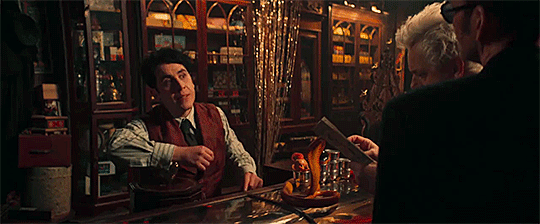
Aziraphale's dry "just aim for my mouth but shoot past my ear," right?
So, how did they figure out that they wouldn't kill each other?
Kingdom of Wessex. 597 AD. The Camelot scene. Crowley and Aziraphale cross paths in the time of King Arthur and are so damn over canceling each other out at work. After Aziraphale rebuffs Crowley's initial proposal of basically quiet quitting Heaven & Hell-- just doing the paperwork and phoning it in-- because he thinks Michael will figure it out (not because he doesn't want to lol), the two part the scene without a resolution... but the 1601 scene provides that resolution for us via the reveal of The Arrangement.
Back in 597 A.D., after the scene we saw, Crowley and Aziraphale got creative in trying to find a solution to their work woes and wound up experimenting with what they had been told by Heaven regarding what their capabilities were. They uncovered that Crowley could still do blessings and Aziraphale could do temptations. So long as they kept pulling power from their respective head offices, it didn't matter what type of miracle they did and no one in Heaven or Hell figured it out. This then caused them to also realize that if they were biologically similar enough to be able to do the same miracles, then odds were high that they actually wouldn't hurt one another if they had more expansive sex and they decided to try it. They're both still here so obviously the end result was nothing but wahoo. What else is suggestive of this besides the already mentioned scenes? This one, in 1941:
Excalibur. King Arthur's sword. Excalibur's Chest. The famous swords-in-the-box magic trick, on sale at Goldstone's in 1941. Swords are as much sexual metaphor as guns. Note what's between them in the magic shop in 1941 when they agree to perform The Bullet Catch together that night, after a performance by The Ladies of Camelot:

This is part of the reason why they also use performing miracles as innuendo-- besides the fact that there is just a lot of material there lol. It's because it took them 556 years after Rome but they happened into figuring out Heaven's big secret and it freed them to boff each other senseless for the last *maths* 1,426 years as of S2 lol so it's kind of irresistible. An example is Aziraphale in S2 with "the 25 Lazari miracle you and I performed together the other night" which is on the surface, sure, about the miracle they did together to protect Gabriel but which Aziraphale makes actually sound like what they got up to the other night, probably the one before Gabriel arrived. He's talking about Muriel there for the Gabriel miracle but he's saying it with a tone of: I suspect that the angel is here to verify the miracle that was Sunday night. I'd imagine alarm bells must have been ringing in Heaven constantly since. You and I raised the damn dead, old serpent...
The Bullet Catch. A sexual metaphor for both "firsts"-- 41 A.D./Rome and 597 A.D./Kingdom of Wessex-- mashed together because they were similar... but also a metaphor for Crowley and Aziraphale's relationship overall.
The Bullet Catch requires them to trust one another and be vulnerable with one another. It's only possible because of how much they trust in and care for one another. Crowley's ability to fire the gun in a way that won't kill Aziraphale-- which Aziraphale is trusting him to do-- means that Crowley has to trust himself to do it. He has to believe himself capable of it and that he can relax enough to do it. He only believes this because Aziraphale believes it about him and makes him feel safe enough to focus. Aziraphale's trust in him allows Crowley to trust both himself and Aziraphale while Aziraphale's trust in Crowley allows him to let Crowley in enough to let him see his insecurities and be loved in spite of them, something Aziraphale's self-doubts and imposter syndrome keep him from doing with other people. Crowley knows he's imperfect and loves him madly anyway, something Aziraphale has trouble doing with himself and which no one else in Heaven ever has. Crowley's faith in and love for Aziraphale give Aziraphale the confidence to live more freely and feel like he's among the professional conjurers and not just on the outside of life. Their trust in one another helps them trust each other and that self-trust opens them up to experiences with each other that lead to ever-deepening trust of one another that lifts them both in a kind of feedback loop.
"Cheers for, um, getting me off the hook." Crowley thanking Aziraphale for helping him with the Mrs. H situation. He's more than aware that Aziraphale assisting with Crowley's broken alcohol bottles when alcohol = sex to them is more than a little metaphorical for their actual history and he chooses a fish reference as part of the thank you. "Cheers" is that British way of saying "thank you" but it's also obviously what people also say as a toast (which is also a word used to refer to warmed bread, which is also related to partnered sex in Ineffable Husbands Speak.) It's what Crowley actually says in 2019 at The Ritz at the end of S1 in the "Cheers. To the world." moment. Here, it's also a reference to the first time they did clink some glasses together in toast-- the "Salutaria" of ancient Rome. And what is this toast-y thank you of Crowley's for? For getting him off-- that is, for getting him "off the hook."

"Off the hook" refers to a caught fish being taken off the hook. It also became, over time, a phrase referring to communication, from the days of phones with cords. Leaving a phone "off the hook" meant that calls couldn't come through and communication couldn't be had. By 1941, the phrase would have roots in both origins and if we're talking about fish and telephones, we're talking about earlier in the evening in 1941 but we're also talking what it referenced to them symbolically about the past of their relationship. It is also absolutely why Aziraphale jumps on The Bullet Catch as his grand gesture once they get to the magic shop-- he sees a way to continue the metaphor that they're both more than aware of.
It also makes it a thousand times funnier then that poor Aziraphale essentially makes the same assumption about demonic life twice over a bazillion years apart. He thought The Bullet Catch would be a no-brainer, fun thing for them to do because he assumed that Crowley had fired a gun before, only to discover that this was now actually Rome all over again because while Aziraphale has a firearms license and a Derringer hidden in a hollowed-out book in the bookshop, this metaphor was suddenly way too on point because Crowley hasn't fired a gun with someone else around before-- in this case, at all, actually. His dry as all fuck "not as such" response to Aziraphale is well, we both know I've fired the metaphorical gun this rifle is standing in for here but yeah, no, I have no idea how to shoot this thing and I was going to miracle you safe and now those aren't working either so I have to do this for real and I'll just be over here trying not to have a panic attack...
Talking. Making sure the telephone is not off the hook is obviously always a good thing with everyone one trusts around them in life. In a relationship context, feeling safe enough to talk openly with your partner about things which make you feel vulnerable is the mark of a trust and what allows for deep intimacy. Talking in bed-- not just checking in with a partner but talking beyond that-- is a therapeutic intervention for anorgasmia, as it helps someone suffering from it to stay present in the moment. Tends to work in general but even more so if the person involved likes chat in bed as a whole, which a couple of scenes suggest Crowley does (the evolution of it into also some extra spicy chat in the "Seeds of Destruction" scene in S1 and his self-deprecating "you just say 'blah blah blah'" moment in S2.)
"We need to talk." What Crowley says in 1.01 when he calls Aziraphale from a corded public pay phone. This is the first time that Crowley and Aziraphale talk in the present, even if they're in separate locations, and the first time we've seen them interact since the opening scene of the show of them on the wall in Eden. We've spent the first part of the 2008 minisode re-introduced to them separately, not yet fully aware of how they were supposed to be together during it. Crowley doesn't wait until he's back in Mayfair after dropping off the antichrist baby-- he calls Aziraphale from the nearest payphone. He says "we need to talk", a phrase that is, for many, a relationship cliche that comes with a sense of the foreboding but we will learn from this scene also means other things to them.
For one thing, it's a code phrase that automatically triggers them to meet the next day at noon at St. James' Park. If one of them calls and says they "need to talk", they know that it means to meet the next day and when and where. This one they know a lot better than their four million alternative rendezvous spots, as we saw in that other scene in S1 when they set up meeting in the bandstand over the phone. Because it triggers St. James' Park, it means that the initial talk will be all coded in their hidden language, as that scene in 1.01 was, but that is also a form of communication for them and a kind that they actually enjoy.
For another thing, it means that they need to talk in general-- that something is happening and they need to talk about it, as was the case with Armageddon. At the time that they have this phone conversation, they don't yet know that one another already knows about Armageddon starting. We know from all the contextual clues we've already looked at here that they were supposed to be having dinner together earlier and that they also can't say that over the phone so when Aziraphale says: "Yes, I rather think we do. I assume this is about....?" there's a dryness to Aziraphale's tone because a form of talking was already on the menu. Sushi night is Rome and Rome had talking so, yeah, Aziraphale rather does think they need to talk-- to fuck-- and also Armageddon just started so they'll need to actually talk-talk about that as well at some point.
Crowley's response to what it's about, though, is destructive sexual metaphor. What do they need to talk about, on all levels, summed up by Crowley in a word?
"Armageddon." Armageddon: the actual end of the world and Armageddon: their big damn anniversary sex. The Big One. It's an apology of sorts for Hell detaining him and a request that they meet tomorrow.
The scene ends with Crowley placing the phone back on the hook-- indicative of understood, secure communication, the likes of which will be on display in the following scenes of the 2008 minisode.
Talking (in Ineffable Husbands Speak). Both verbal communication and physical communication. Talking means speaking. Talking also means making love.
"Trust me." What Aziraphale mouths at Crowley in 1941 to get him to be in the moment enough to be able to fire the gun. Absolutely one of the things Aziraphale said to Crowley to help him relax in Rome.
"I knew you'd come through for me. You always do."

Aziraphale pouring Crowley another glass of wine (and alcohol = sex) and the wordplay kink out here in full force as there are three levels of meaning happening at once. Surface level is about their success with The Bullet Catch earlier in the evening. Aziraphale knew Crowley would come through for him-- "come through" in the sense of he can always rely upon Crowley to be there for him when he needs him to be.
To "come through" something, though, is also to get through to the other side of something-- to have been able to pull through a difficult time or a struggle-- and refers to Crowley always coming out of dark periods and not giving up. But there's really also the third meaning, which is just the direct innuendo:
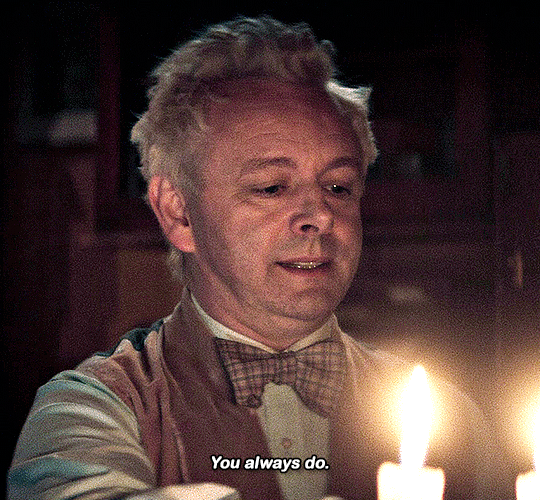
Some serious 'tone of voice' at play in this bit here performing a little magic trick and making that 'through' disappear right out of first sentence lol, turning it into: I knew you'd come for me. You always do.
Aziraphale's never going to stop being thrilled at their Roman triumph here and is still happy to remind Crowley in 1941 that they both know Aziraphale just does it for him.
"Well, you said 'trust me', so..."
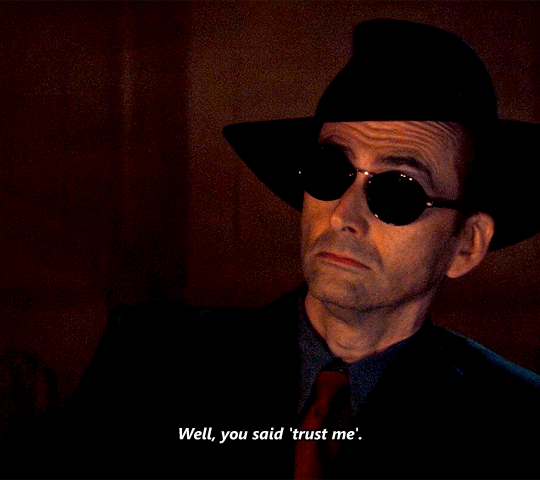
Just prior to this, Aziraphale had been telling Crowley the magic words he silently said to keep the photo of them from Furfur (more fish-- "bananafish").
"Well, you said 'trust me'..." is Crowley saying "well, you said my magic words, so..." Aziraphale invoked Rome and talked to him so he got there.
"And you did." And Crowley did trust him, so it worked.
Aziraphale, though, is not just thinking about earlier that night in that moment in 1941 when he's staring off, reminiscing, before looking at Crowley like that...
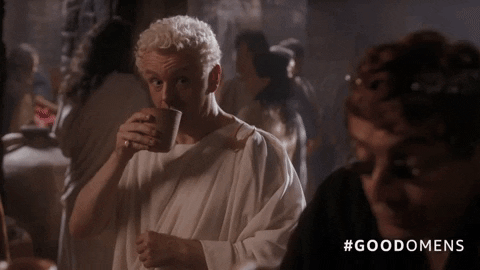
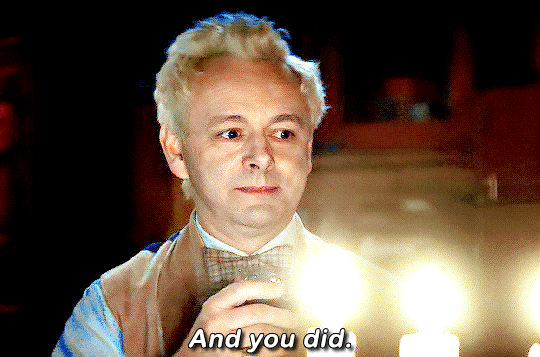
...he's thinking about Rome.
"To drain the whole sea/Get something shiny..." Lyrics from Hozier's "Take Me to Church", pretty uniformly agreed as the most Crowley song that has ever Crowley songed, and which is on his official playlist in S2.
Pearls. The shiny things found in the sea. The jewels harvested from within the opened protective shell left behind by emerged oysters.
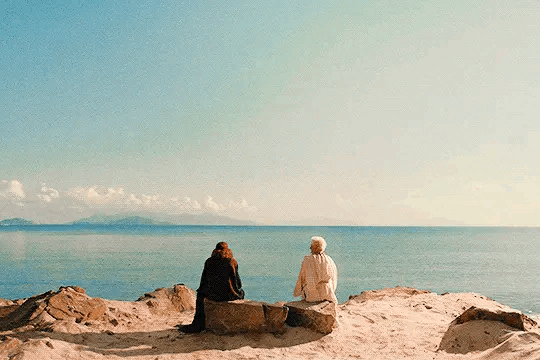
The original post referred to a bit in this one:
297 notes
·
View notes
Text

the bookshop is silent except for the soft music and the whisper of fabric as they move. the lights are low, just warm enough to blur the edges of the world. aziraphale sways a little closer, words half-whispered into the quiet space between them. crowley looks at him like he’s known the answer for centuries.
3K notes
·
View notes







